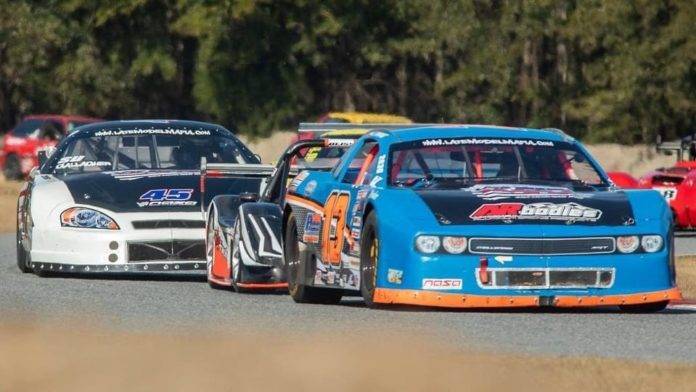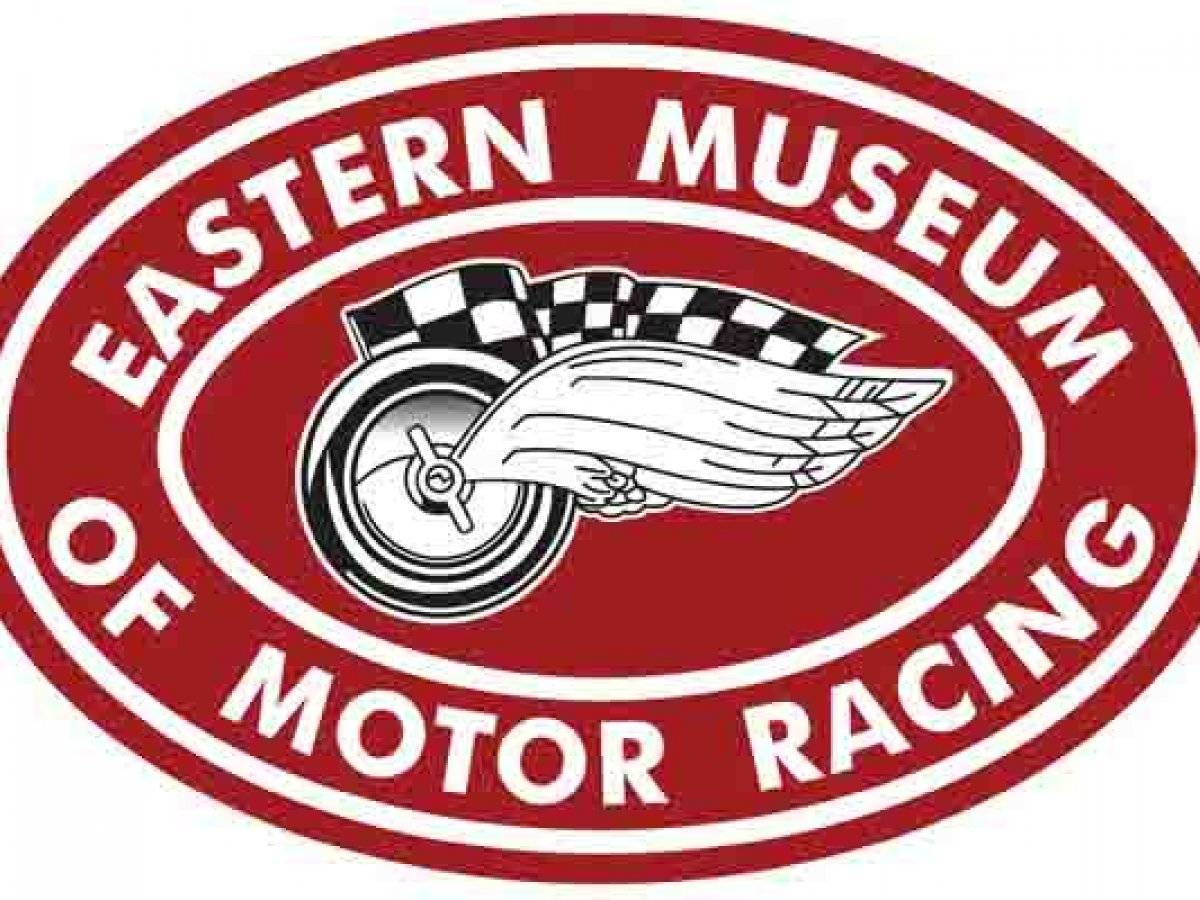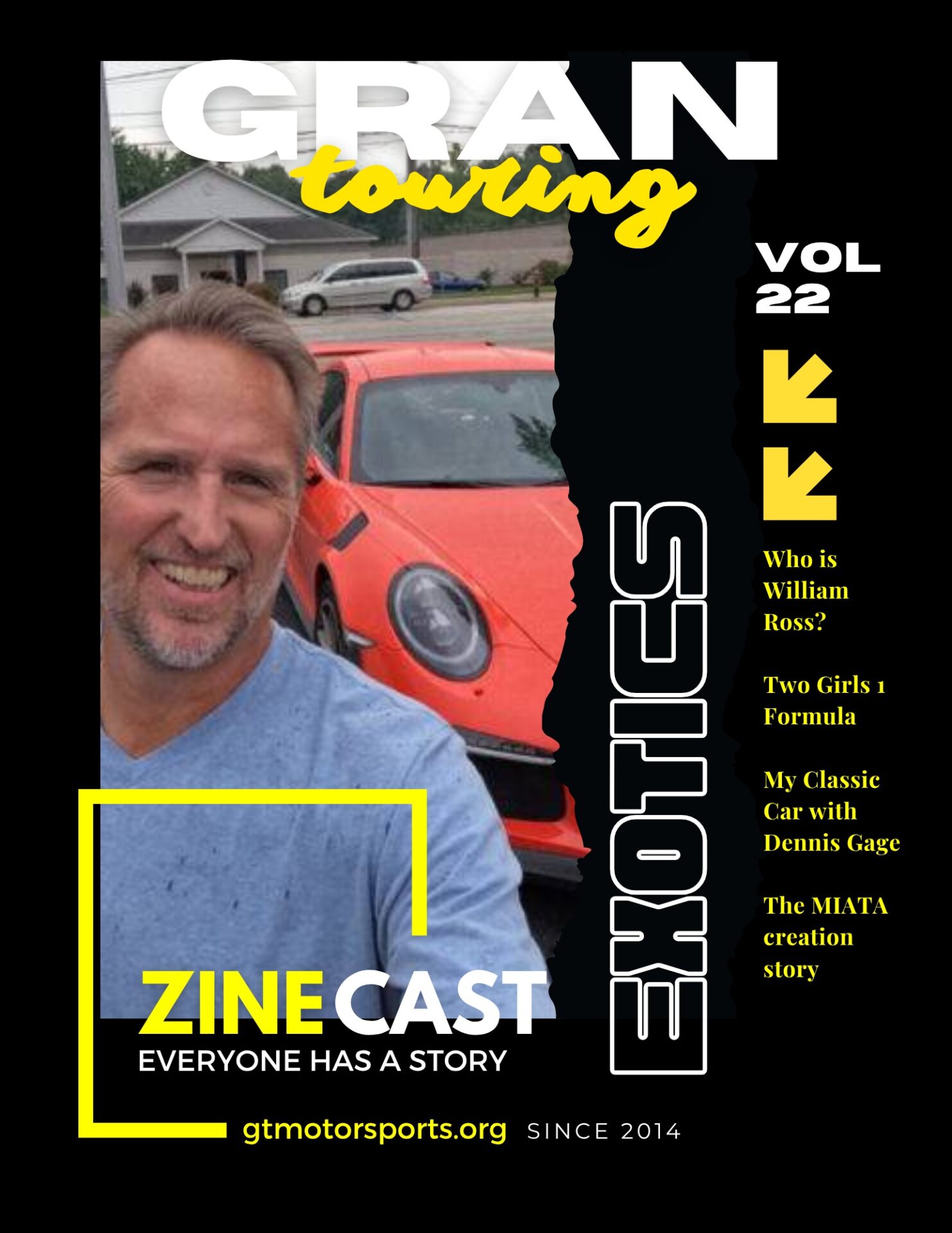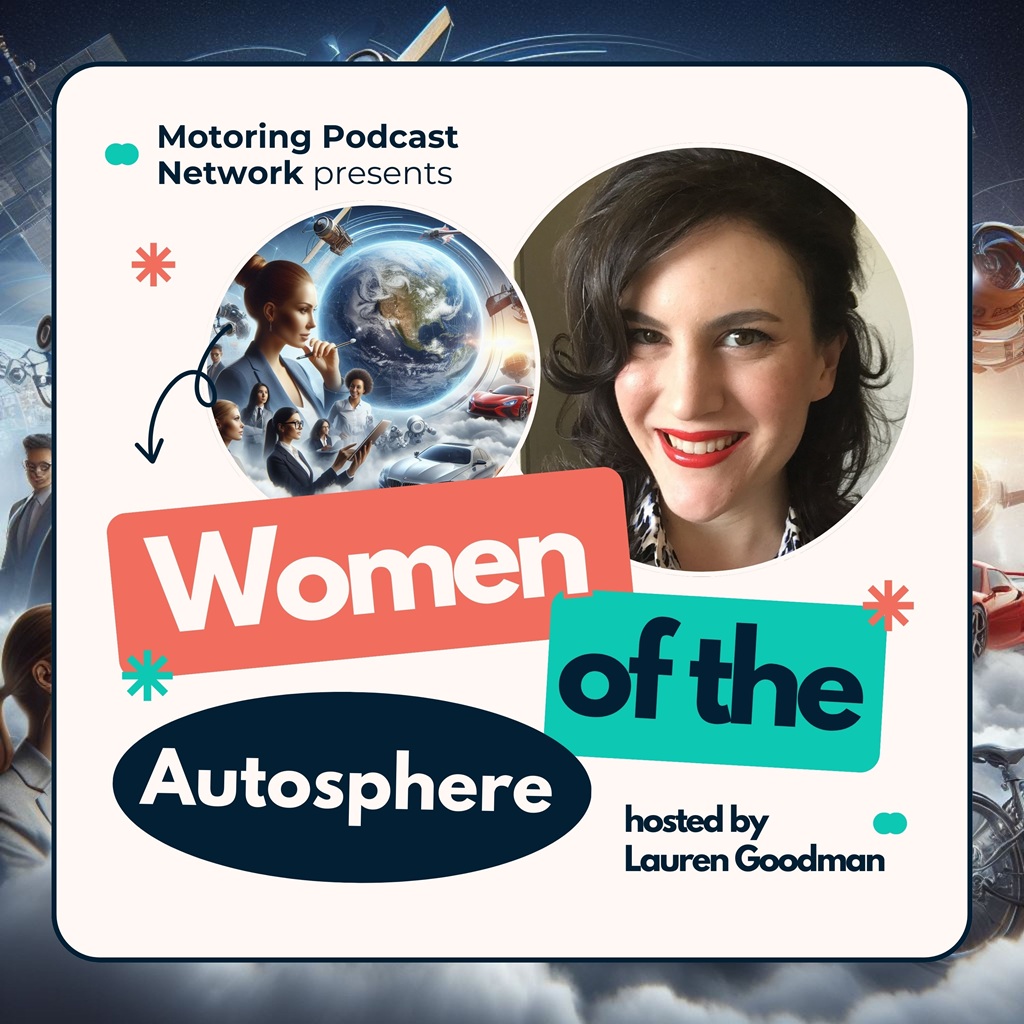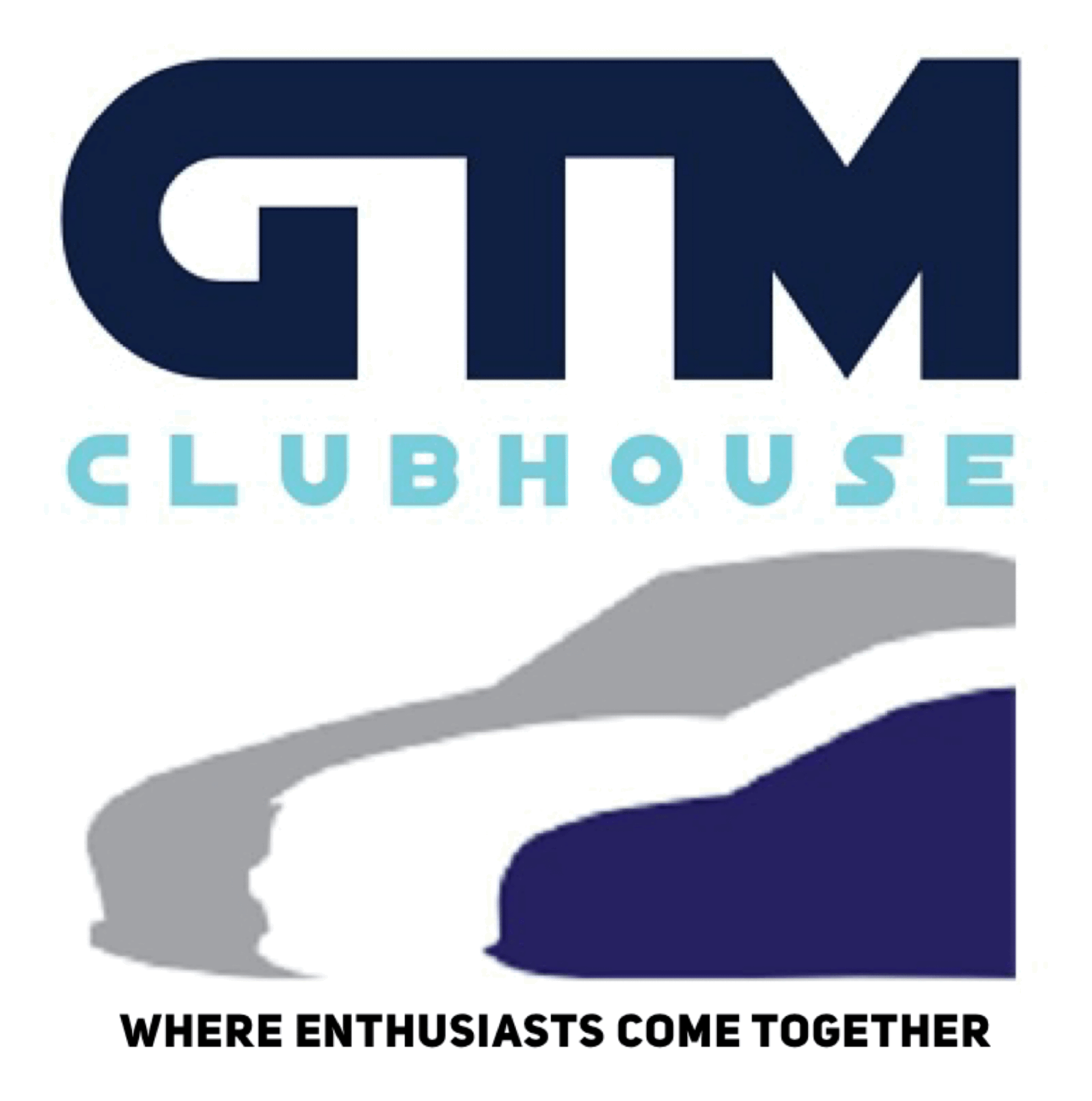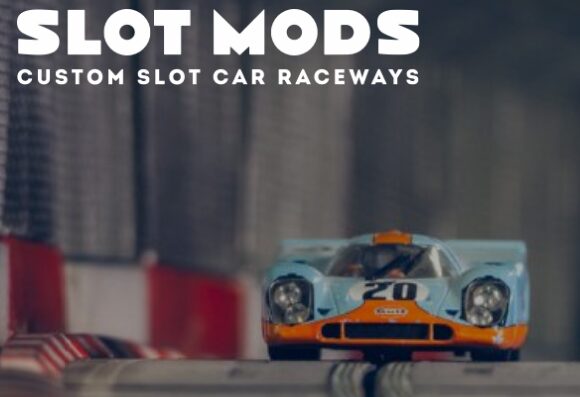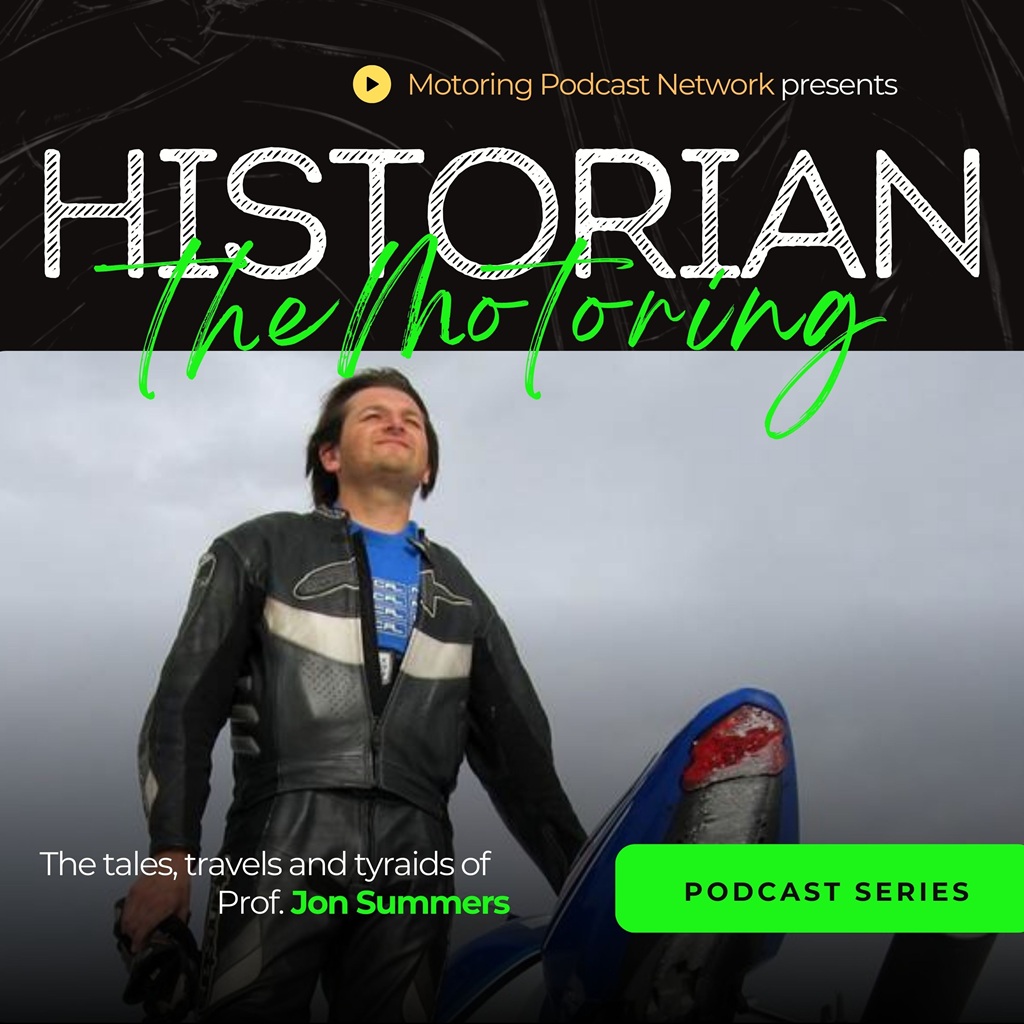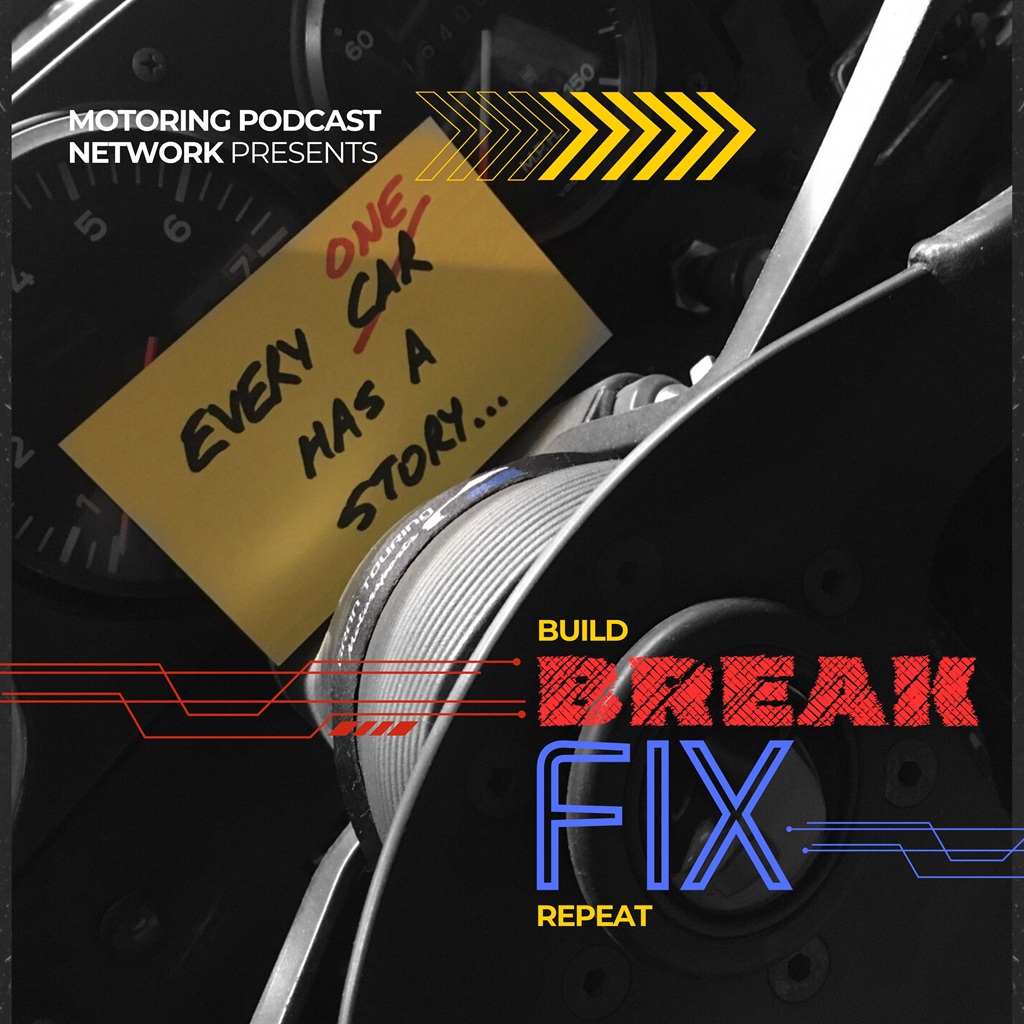Late model racing is at the epicenter of American motorsports. Whether on dirt or asphalt, late model drivers, crew, and fans are family, and it’s this essence of family that makes the world of late model racing one of the greatest of all time. Late Model Mafia and their founders Mike Gallagher & Koby Timms join us tonight to share their experiences and help you understand the gathering place they’ve created for all late model enthusiasts to interact, learn, and simply share stories and good times with one another.
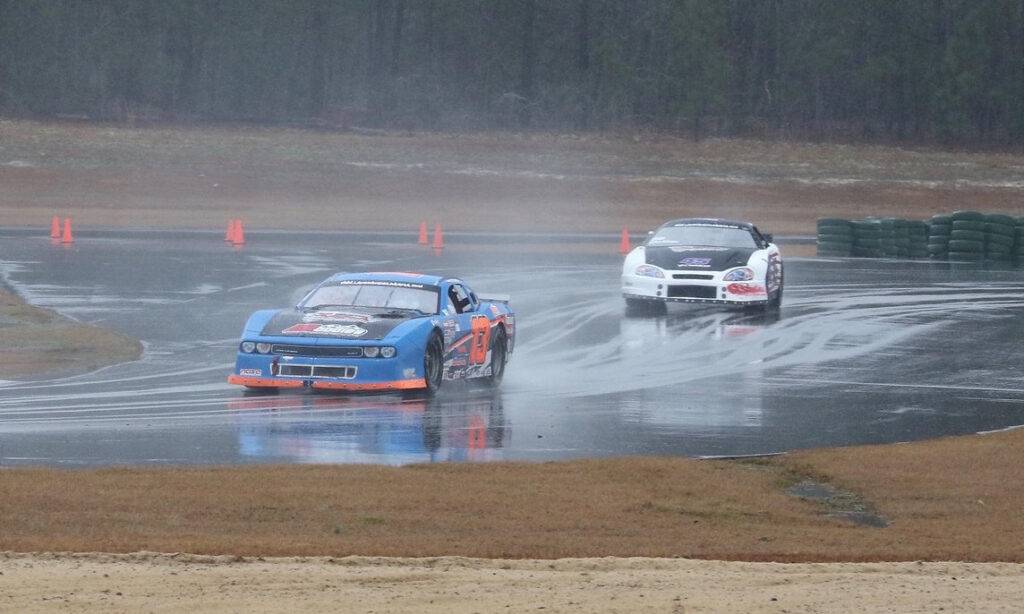
Tune in everywhere you stream, download or listen!
 |  |  |
- Spotlight
- Notes
- Transcript
- Highlights
- Learn More
Spotlight
Mike Gallagher & Koby Timms - Owners, Operators and Team Mates! for Late Model Mafia
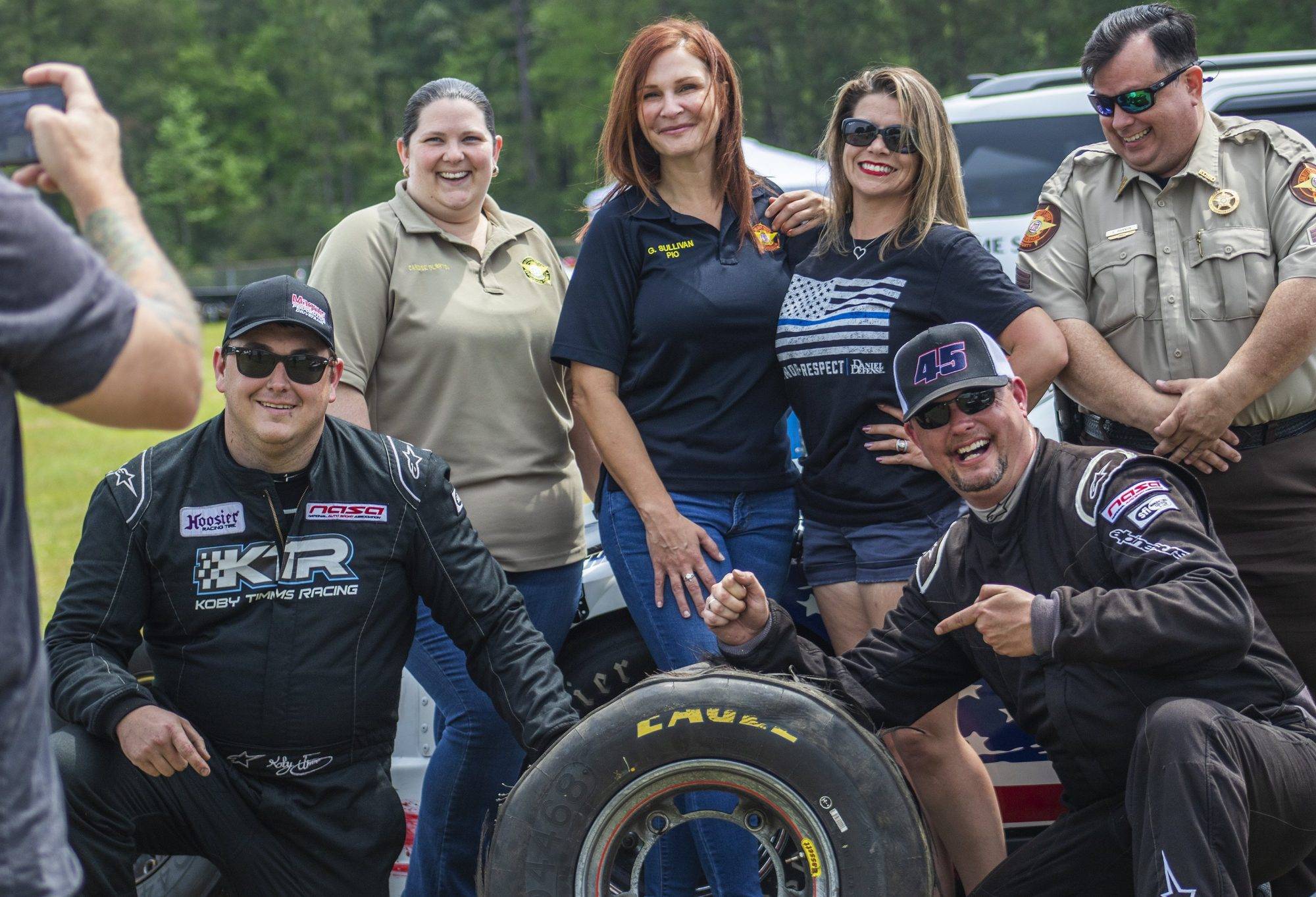
Late model racing is at the epicenter of American auto racing. Whether on dirt or asphalt, late model drivers, crew, and fans are family, and it’s this essence of family that makes the world of late model racing one of the greatest of all time. Late Model Mafia is a gathering place for all late model enthusiasts to interact, learn, and simply share stories and good times with one another.
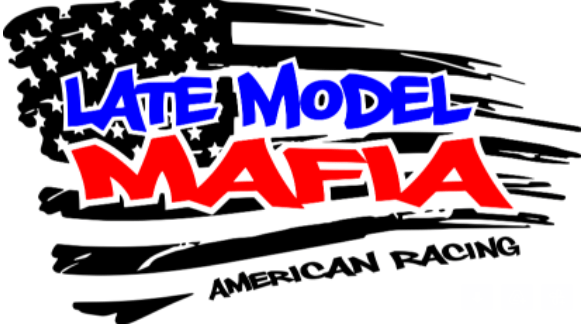
Contact: Mike Gallagher & Koby Timms at latemodelmafia@gmail.com | N/A | Visit Online!![]()
![]()
![]()
Notes
- Let’s first start off defining and describing to our audience “what exactly is a late model?” – are those specifically GM products, or does the label apply to all domestic brands, or is it a period in time?
- The Late Model Mafia origin story – how did all this get started?
- Taking a “STOCK CAR” (won’t call them NASCAR) and converting it to Road Racing (TA2) what is that process like? What needed to be changed/upgraded/replaced? How different is the setup from oval to road?
- More about the LMM community, what would a first timer expect to find when they visit latemodelmafia.com? How does one “join the club” so to speak? Are there fees? What services does LMM provide?
- We noticed that you have something called “the pit lane” on the website, and we noted a previous guest on that list of racers: Annika Carter. Tell us more about the pitlane; what is that all about?
- How is LMM changing? – evolution to “Motorsports Mafia” what does that mean for the future of LMM?
and much, much more!
Transcript
Crew Chief Brad: [00:00:00] Grand Touring Motorsports started as a social group of car enthusiasts, but we’ve expanded into all sorts of motorsports disciplines, and we want to share our stories with you. Years of racing, wrenching, and motorsports experience brings together a top notch collection of knowledge and information through our podcast, Brake Fix.
Crew Chief Eric: Late model racing is at the epicenter of American motorsports. Whether on dirt or asphalt, late model drivers, their crew, and their fans
Mountain Man Dan: are family. And it’s the essence of family that makes the world of late model racing one of the greatest of all time. Late model mafia. And their founders, Mike Gallagher and Koby Thames, join us tonight to share their experiences and help you understand the gathering place they’ve created for all the late model enthusiasts to interact, learn, and simply share their stories, good times with one another.
Crew Chief Eric: That’s right, folks. And joining me tonight is the one, the only Mountain Man band to talk about late models with the boys from Late Model Mafia. So let’s first [00:01:00] start off by defining and describing to our audience. Exactly is a late model. Are those specifically GM products or does that label apply to all domestic brands or is it a period of time?
What the heck is it?
Mike Gallagher: Late models, whether they’re on dirt or they’re on asphalt, whether it’s oval or road course racing, they’re, they’re really in one of a kind. They are purpose built from the chassis up from nose to the tail. Everything’s a tube frame. There’s nothing really that even resembles what a normal street car would look like.
And Kobe, if I’m wrong, they’re one step away from an Arca car or a NASCAR or anything that you would see on TV.
Koby Timms: Nothing’s production. It’s all custom built handmade chassis. They call them stock cars, but they’re so far from stock. It’s the best way to put it. There’s nothing stock about it.
Crew Chief Eric: Does it go back to a certain peer starting with the muscle cars forward, or is it just the way they’re built?
Mike Gallagher: Yeah, it really doesn’t. It’s all about chassis, right? So like on my car, I have a Townsend chassis and Kobe’s car has a Hampty chassis and their purpose built from these two companies and [00:02:00] our cars were designed to run asphalt oval. We took them and turn them into road course cars. Dirt cars that I’m, I’m a little less familiar with, but we have some people, you know, on the team that, that run dirt cars, same thing they have purpose built chassis all the way up the bodies that you see on these cars.
You know, just take NASCAR, for example, you know, you’re looking at the cars. It looks like a Camaro, but there’s nothing Camaro about it. My car is actually a body of a Monte Carlo. But it’s literally just sheet metal and fiberglass. Uh, it comes off in about 20 minutes door costs about 30 bucks. There are no doors.
Actually, you just climb through the window, like a, like a regular stock car and off you go. It depends on what series you’re on. Really? I mean, you can talk about dirt guys or run 602 604s or the super lates where they can pretty much run, run with your broom kind of thing. For Coby and I, we typically stay LS based motors, Chevy’s, which adds to the conundrum of Coby’s car, right?
The 13, which is a Dodge challenger body, Hamke chassis, and an LS based motor. So there you have it. There’s no telling what’s coming around the track until you actually get to the pits, you get to see, you know, under the hood and see what the guy’s actually running. So it’s kind of wild.
Mountain Man Dan: [00:03:00] So you mentioned two chassis builders in your description of them.
Are there other chassis builders out there?
Koby Timms: There’s probably in the southeast along as far as like, you know, asphalt chassis in the Carolinas is where they’re really big in production. There’s probably 25 plus companies out there right now that’s building cars. As far as dirt cars, there’s tons. I mean, it’s everybody’s got their own ideas.
Everybody’s got their own concept. And then there’s a lot of companies that’ll take a modern name brand chassis and they’ll find something they like about it and they’ll tweak it and kind of copy it and produce their own chassis. So there’s not like a one generic company everybody uses. If there’s 25 cars in the field, there may be 25 different chassis.
Crew Chief Eric: But only three really engine types, right? You’re talking about the Ford V8 LS and, uh, Mopar Hemi at that point, right?
Mike Gallagher: And most guys, you know, will run something LS based. They’re just super reliable. They’re dependable. You know, most guys that run late models, especially road courses and, you know, the regular late models on dirt and asphalt oval, they don’t have these million dollar budgets, right?
So they’re looking for the biggest bang for their bucks. So [00:04:00] they’ll go with the CT crate, 604 crate, something along those lines, plenty of horsepower for what we need. I mean, my car is actually getting a new CT 525 put in it right now. I think I weigh the new motor will be about 2,600 pounds and I’m gonna have about seven 50 horsepower.
So weight, the power ratio is gonna be nuts.
Mountain Man Dan: Well, a great thing that I’ve mentioned on numerous articles I’ve written as well as podcasts is I’m a GM guy, and with the GM engine itself, interchangeability is way better than your Ford or your MO power engine because if you go from small block to big block, a lot of stuff can be interchangeable.
Right. That’s a great aspect of GM motors going and stuff.
Koby Timms: The cool thing about GM too, is the 525 and the LS based stuff. It’s, and me and Michael’s had this scenario countless times. You break something stupid, more than likely advanced autos got it. Oh yeah, we’ve been at
Mike Gallagher: Roto Lana and we’ve had to make a dash for advanced auto for an alternator, or just some stupid part that just broke.
Koby Timms: Starters, serpentine belts, power steering belts. It’s hilarious when you get to the parts store, they’re like, [00:05:00] What make and model is it? Michael always has to tell them some stupid shit.
Mike Gallagher: Yeah. I don’t even know what I tell them half the time. I’m like, yeah, it’s uh, not really sure. I’m just kind of winging this here, but it’s a Chevy motor.
No chassis. You’re not, you’re not going to find it in your database, I promise. You know, it’s one of those things.
Crew Chief Eric: It’s a late model
Koby Timms: and they go, uh huh.
Crew Chief Eric: Yep. Got it. Yeah. Okay. What’s that?
Koby Timms: Part short, if you got like a 525 or something like that, a small block. Basically tell them you got something for a 72 Chevrolet truck, if it’s an LS space, about a 99 Corvette, and usually you’ll find something that’ll work.
Crew Chief Eric: So you could basically say that at the heart of late model is GM. And that’s, that’s pretty cool. So it’s neat to see that, I mean, despite the sheet metal on the outside, but we all know that, right? You see the new Camaro NASCAR, and you’re like that, that’s not a Camaro, right? It doesn’t share anything with
Koby Timms: you.
So generic is ridiculous. Literally they’re all now running Everybody, Toyota, Ford, Chevrolet, are all running the same chassis, just different metals. I may be wrong, I want to say the chassis is designed by [00:06:00] McLaren.
Mountain Man Dan: I don’t know if it changed, but there was a rule for a while where they were using the exact same template for the outline had to be the same for the aerodynamics to be the same.
My thing is the original stock car and NASCAR back in the day was off a manufacturer’s lot and you took to the track. It’s not like that.
Mike Gallagher: No, no. These are purpose built race cars. Now there’s nothing that came off any assembly line. These things were built from the ground up basically right there in the shops.
So just like ours.
Crew Chief Eric: And that’s what we’re going to explore here, right? Is there’s more than meets the eye because these things are way more complicated than people realize that there are a lot of fun to your point. I mean, looking at the weight alone, people go, I think weighs 2, 600 pounds. No way. So we’ll get into all that.
Kobe hit on something kind of interesting before he said about the asphalt chassis, all being built in the Carolinas. Are they coming out of Mooresville? Just like a lot of the trucks and the NASCARs and things are as well, or are they built somewhere else?
Koby Timms: There’s a lot up in NASCAR country. Carolina is kind of the epicenter of stock car racing.
Carolina has also come home. A lot of the indie teams, also some of the indie teams have moved operations up there. So I’ve got [00:07:00] buddies that live up around, you know, Charlotte area, Carolina, and that’s, you either work in NASCAR or, you know, somebody that works in the racing industry or something, that’s just, that’s what they do up there
Crew Chief Eric: before we get into the more intricate parts of how these late models work.
Let’s take a step back and talk about the origins of late model mafia, where that came from, how you guys met and everything that goes along with that particular origin story. So who wants to take their first shot?
Mike Gallagher: I’ll take a crack at it. I call Kobe first. I started road racing about three years ago. I had 40 and I was having a midlife crisis and I have a C7 Corvette, my daily street car.
And my wife’s looking at me, like, don’t even think about it. You are not taking that thing to the track. And I was like, all right. So I ended up buying a 350 Z for like three grand, beat the brakes off it, had a ball and just fell in Yeah, we both did. Yeah, I’ll get to that. We broke that car’s back, you know, but we had so much fun.
It was reliable. It was a good time. And then I started going to track days, you know, working around, you know, HP junkie and, you know, working with him and just having fun. And it progressed for me to where [00:08:00] I decided to go ahead and build my first purpose built race car. I found a Thunder Roadster chassis.
They were one of the classes within NASA that was kind of fizzling in fizzling out kind of thing. And I found a chassis with a blown motor, basically a roller needed a lot of work. I was going to do the upgrade, the high boost upgrade and all that. So I bought it for like three grand and I started to take decals off it.
And I noticed that I saw these logos and they said KTR. I’m like, wow, that must’ve been the last owner. You know, I bought it intermediary from another guy. So I started hunting down KTR racing next. I. Somehow got his phone number and I’m like, Hey, you don’t know me, but I think I have your race car.
Remember?
Koby Timms: Yes. I remember. I get this call. I can beat on him now. He’s like my best friends now. So I can, I kind of beat on him a little bit. I get this call from this Jersey boy asking me questions about a race car. And I was like, but he told me he had my old car and you know, was asking questions about it.
I kind of helped point him in the right direction as far as, you know, where he needed to go. As far as, you know, getting that car repaired and back on [00:09:00] track. And then God, I don’t remember. Where did it go from there?
Mike Gallagher: Honestly, man, I called you a couple of times and we just started talking more and more and the next thing you knew, man, we were talking about like, Hey, do you want to go here?
You had already had your comp license with NASA. So then you just started going to me to get my comp license. I ended up getting it in the Thunder Roadster. And then I think it was a barber motorsports park. Like is where late model mafia came to be. We, I brought number, I brought the Z up and we just beat the shit out of that car for like, Right three days straight, we got black flagged like 25 times for smoking and for just doing all kinds of ridiculous shit.
Man, it was bad. It was so fun there. We got video of it, like we’re going by the flag station and they black flag us with our number. It was 0 2 3 and they’re like, and CO was like, what the yelling out the window dude. It’s like a plume of smoke coming outta the back of the car. We had, I don’t even remember what was leaking.
We had something leaking. We had so much fun that weekend. We were sitting around after the Saturday track day and we were just drinking beer and having a good time. You know, Brittany, Kobe’s fiance and my wife, Debbie, we were just sitting around laughing and [00:10:00] goofing and we’re like, Hey, we need it. You know, and Kobe had been egging me on about buying a late model.
He was like, get rid of that Thunder roaster. It’s slow. It’s boring. Trust me. Once you get into a late model, you’ll never come back. And I ended up buying one. Turns out I was hooked and right there that day, we created a late model mafia. We started thinking about names and it was going to be like stock car mafia.
And then we changed the late model mafia. The logo came about within a week. And actually I knew we were LLC and we were up and running.
Koby Timms: Without getting political. That was during 2020.
Mike Gallagher: Oh, it’s a rebel flag and NASCAR.
Koby Timms: Yeah, yeah, yeah. We intentionally use the tagline, make racing great again. Yeah, I saw it on the website and the hats.
Oh yeah, oh yeah. We had a hat, like a throwback hat that actually was red hat like Donald wore and it said, make racing great again.
Mike Gallagher: There was a 45 on the side for my late model number, which, you know, just happens to be his presidency number. So that was kind of funny too.
Koby Timms: We’ve always tried to be really patriotic with everything.
As pro America as we can, because Mike is a vet, I’ve always been involved in it. And I grew up in a [00:11:00] house where you either rode a Harley Davidson or didn’t bring it to the house. So we’d go to the international motorcycle shows and stuff, and I’d see the Buell bikes, and they were American Buell street bikes.
My dad always would tell me, if you’re going to have one of those damn crotch rockets, it’s going to have to be a Buell. To continue on our patriotic theme of a business of our bloods in my house,
Mike Gallagher: military Coast Guard for five years, police officer for 10 years. Yeah. I mean, it’s, it’s red, white and blue.
You know what I mean? It’s, it’s kind of, we started out with, you know, American racing and then did the whole make race a great again thing and just kind of segwayed it back, you know, and just keeping the red, white and blue themes. Nothing’s more American in my eyes than a late model stock car. I mean, they’re just, it’s America, you know, it’s America’s race car in my book,
Koby Timms: growing up, it had to be a V eight or a V twin.
That’s the way I always looked at it.
Mike Gallagher: It’s American as hell, man. I mean, it gets no more American man, big high horsepower cars and just big boxes, you know what I mean? Ripping around track. You know, honestly, we started it as like, kind of like a joke, Hey, you know, like we’re late model mafia and we were teammates.
[00:12:00] We knew that we were going to run together and NASA, you know, we had a bunch of other teams out there like big dog racing and team Tracy motor sports and Anika’s racing and all these people that had pit crews, you know, or somewhat of a pit crew and teams, they have multiple cars on track at the same time and we’re better than a team up with another late model.
We get side by side on a road course, we’re 15 feet wide, good luck passing us. You know what I mean? So. Yeah, we ended up, it just started out as a joke, you know, and we were just laughing and clowning and kind of playing the whole NASCAR BS that was going on. And next thing you know, we’re doing business and we’re in business.
Koby Timms: My background, I got into road racing in 2018, well, actually about 16, I guess we bought an old retired cowbush cup car and we were taking it, running track days with it. And I think about every track day group that we went to, it asked us not to come back because it was just ridiculous. It turns out it had some issues.
We sold it off. I got a Thunder Roadster. I ran it for probably three quarters of a season. And the guy that’s over the Thunder Roadster program told me, he’s like, the motor you’re running is the old [00:13:00] Yamaha. It’s kind of previous make of engine they use. He said, you need to get the Habusa. I was on the line of deciding whether or not I wanted to invest in the Habusa because to upgrade one of these cars from Yamaha to Habusa was like 15 grand.
And I was like, how? Ask me how I know. I was like, Jesus, you could go buy a fricking brand new booster for that. I mean, why the hell is this much money I got on Facebook marketplace and actually found the late model that I, I have it. It was a guy actually down in Savannah and down around Michael’s area that had it.
And so we ended up wheeling and dealing and. I traded him a roller Thunder Roadster for a light model turnkey, which I still don’t know why he did it, but hey, that’s on him. The car got and Michael ends up finding out who KTR is and welcome to the shit show.
Crew Chief Eric: So as an organization, as a business, what are you guys selling?
What are your services? What are you providing?
Mike Gallagher: So the biggest thing that we just started and it’s actually really starting to gain traction is on our website. If you go to lightmodelmafia. [00:14:00] com and to the page pit lane, We’re actually doing marketing for race teams now for young up and coming race teams, where they get their own website under late model mafia.
They have their own webpage, their schedules out and they have merchandise that’s available to people that follow them, their fans, you know, video of them. If they have YouTube accounts and all that sort of stuff, we can kind of custom tailor, whatever their outfit is, you know, according to their race team, the size of the scope.
I think we’ve got seven or eight teams now and it’s only been up for a couple of months ago. Oh my God. Yeah. It’s a very nominal fee, you know, on their side and depending on what contract is signed with late model mafia, it depends is kind of dependent on profit proceeds that go back to the team. So basically, you know, they pay the upfront costs for the website development, marketing, and all that kind of stuff.
Any sale they make on late model mafia of all their merchandise goes straight to them. So the profits all go back to the team and eventually help fund their team.
Mountain Man Dan: For the teams that you help are most of those the road course guys, or do you guys have
Mike Gallagher: well, yeah, so right now I can kind of break them down real quick.
We’ve got, um, Kobe and I are up there obviously team Tracy Motorsport. [00:15:00] She’s, uh, running NASA. She’s a two time TT champion, and she just changed over to wheel to wheel. And she is one bad ass driver. I play hell keeping up with her. She’s Awesome driver, Anika Carter with Anika’s racing. She’s another great one.
She typically runs Spec Miata. She also has a ST car with NASA
Crew Chief Eric: and she’s been on the show before. So that was part of the cross. I
Mike Gallagher: thought you guys knew that. Yeah. Rita Marie racing. She’s an up and comer. She’s trying to work her way into the Arca series. God bless her. We hope she makes it. We know how tough that can be.
She’s pretty new and she’s developing a car right now to hopefully get her there. And then we’ve got some Oval guys, number 22, Joshua Batch. He’s actually out of Savannah, Georgia, runs a lot in Cordele and up in Dillon, short track Oval with a pure stock, my stepson, Zachary Christian racing, number 69, just made his debut up at Chris motorsports park.
He went out for his first outing and his brand new legend that we just put him in. So he’s having a hell of a time. And then we’ve got a champ team that’s being developed right now, which is FAFO motorsports. Cause why not? I mean. It’s kind of very fitting. [00:16:00] It’s more or less a bunch of late model drivers, and that’s kind of their mantra is basically if you don’t move, I’m just going to run you over kind of thing.
So, so they all decided let’s call it motorsports. So there we are. A couple others that are looking into it right now, and like I said, it’s a great product. I definitely urge anybody that’s looking to, you know, get merchandise out there and get their name out there a little more. It’s literally no must, no fuss.
You tell late model mafia what you want. We build it. We put it out there for you guys, share the heck out of it. Make your sales, make your profits, help fund your addiction of racing, you know, or even trapeze, whatever you’re into.
Mountain Man Dan: Most of the teams you’ve mentioned are all in the Southeast right now. Are you guys planning to expand to Northeast, even out West and everything?
Yeah, we are.
Mike Gallagher: Absolutely. We’re fully capable of handling the entire country. So it’s one of those things that if somebody comes on the website and they, they’re interested, there is a place where they can shoot me their information and I’ll get in contact with them and then hopefully 24 hours and see how it can help.
Crew Chief Eric: I like the fact that it’s not strictly locked into just late models. I mean, you got some spec me on us and other stuff in there as well. So do you see yourselves also supporting the folks that are doing e sports? Because [00:17:00] we know a lot of guys that are, you know, I racing became really, really popular a couple of years ago.
And there’s folks that are running virtual late models out there and they got teams and they got swag and they need sponsorship. Is that another avenue to pursue as well? Yeah.
Mike Gallagher: Absolutely. I actually ran ERA last year and had a ball with it. It’s a lot of fun and honestly, it’s great practice. You know, it’s one of those things where if I wreck my car, I just hit reset and keep going on like my real car that probably cost me 40 grand to fix.
iRacing is blowing up. We’ve got some big plans for that here in the near future. We’d love to come back on and tell you guys about more once we have a little more developed. Yeah, we’d be happy to take on iRacers. Is anybody looking for
Crew Chief Eric: Sponsorship and marketing basically, right?
Mike Gallagher: Yeah, anybody looking for sponsorship and marketing in the motorsports arena, drag racing, it doesn’t matter.
If it’s got a motor and four wheels, or even two, and you want to go fast and you need some marketing, we’re here to help you.
Crew Chief Eric: So how does one go about joining Late Model Mafia?
Mike Gallagher: Are there upfront fees? So it’s all contractual without getting too deep into it on here. Basically it’s how much you buy in is how much you get back, right?
So if you elect to do the, you know, to pay the full price upfront, which is very nominal, [00:18:00] it’s very small. Like I said, Kobe and I are here to make millions. This is part of our passion. This is what we love to do. And if we can help other people. Great. You know, it’s very small and it’s really just to help pay for the expenses of the website, putting marketing ads out there, if they pay in a hundred percent, they get a hundred percent of their profit back.
They already have a small fan base or even just family and friends that are buying stuff. Even if they purchase from their own website, they get their profits straight back. It’s kind of a win win. I’d kind of factored out the other day on the profit margins based, you know, around the merchandise sales.
And we don’t just do t shirts. We do hats, t shirts, mugs, banners, flags, you name it. We can do it. Hoodies. Pants, shoes. I mean, whatever you can dream, socks, we can get them. You want socks, we have bathing suits. I mean, whatever you want, you know, whatever your crowds into, we can make it happen. It doesn’t take much if you were to, you know, to throw in the full top dollar amount and you have a pretty popular base already, you’ll make that money back and probably the first month or two.
Like I said, we’re doing this so that we can help people get their names out there, hopefully help advance their careers in motor sports and just. Help them do what they [00:19:00] love, you know, because Kobe and I, we know the one thing about a late model, when you ask what the definition is, the first part of definition is goes fast, breaks a lot.
We know exactly how bad it sucks to blow a motor and be out 15, 000 to get this thing fixed, get it back on track to finish the season. It’s helped us. I mean, coming, I have both made sales just off our own website, you know, and it’s, it’s put one in our pockets and, you know, it’s cool to walk down the street or at a racetrack that you’re, you know, your hometown or whatever.
And there goes a guy, you know, walking down the street in your shirt and you’re like, yeah, that’s cool. You know what I mean? And you don’t have to be a NASCAR driver, you know, to get that kind of exposure.
Koby Timms: What I really like about this program is. This is my 20th year racing. I started in 2002 in dirt show carts.
I wish that we would have had this program back then. It would have helped a lot marketing and everything. But I mean, we got to figure 20 years ago, we didn’t know what social media was and social media is everything now. It seems like when it comes to motor sports and Michael has helped me a lot as far as the marketing and, you know, social media stuff, that’s, you know, if you don’t really know a lot about it, you can get [00:20:00] yourself in trouble with it.
If you don’t know how to properly use it.
Mike Gallagher: Social media is funny, right? It’s one of those things where it’s a blessing and a curse because everyone’s on social media. So how do you get yourself to the top? Thankfully, I have a brainiac of a wife who knows how to maximize SEOs and do all that sort of thing.
So the first thing you see when you type in Michael Gallagher, It’s going to pop up and it’s just a matter of how do you do that? How do you formulate that and get yourself to the top of that Google search? It’s invaluable. You know, some people would never even know that my team exists, but they happen to look up racing and somewhere in the Southeast.
And boom, one of the first to pop up.
Mountain Man Dan: So thus far, all of your, I guess, client base and people that have joined up, has it all been like word of mouth? I think you’ve been working out at this
Mike Gallagher: point, the SEO, we were getting quite a bit of traffic on the website. I just don’t think that we have quite the marketing strategy that we need yet.
We’re still developing it. Quite frankly, it’s interesting because we really expected more late models, especially dirt late models. Cause those guys are in desperate need of sponsorship that they would have popped up, but we’re seeing more road course cars outside of the late model scope. We’re seeing Corvettes.
We’re seeing Miatas. [00:21:00] We’re seeing legend oval cars. We’re seeing pure stocks.
Koby Timms: It’s went a lot further into motorsports than I thought it would as quickly as it has. I thought we would pick up, you know, late models, you road racing and stuff, but there’s a lot coming.
Crew Chief Eric: For those folks that are looking to work with late model mafia for their sponsorship and getting their brand out there and building their base and all that.
Are there any restrictions or obligations that they should be aware of, or is it pretty much open to anybody That’s currently racing right now.
Mike Gallagher: It’s open to anybody that’s currently racing right now. The more the merrier we want as many people to get that exposure as they possibly can. You know, the only thing that we ask is, you know, we try to keep it as PG as possible.
A lot of people will come to me. Hey, can you make this shirt? I’m like, yeah, that’s great. But that’s not what our brand’s all about. We’re not trying to stir the pot. Yeah. It’s funny. You know, we joke around, make racing great again and all that, but we’re not going to that level. Keep it professional, have fun with it.
That’s the biggest part. You know what I mean? If you want a goofy design, we can certainly do that. Or you want something wild, it’ll catch somebody’s eye. Sure. We really [00:22:00] don’t want to dive too deep in the politics or we won’t, you know, don’t want to get into any kind of offensive behavior and it’s racing.
And so bring people together to have fun.
Crew Chief Eric: You’re building a community. Absolutely.
Mike Gallagher: And I will say this too, that, you know, out of the teams that we have so far, and there’s multiple disciplines that between team Tracy and I, you know, it’s, it’s funny, Coby and I always, you know, we, we race against Tracy, I mean, and she’s probably one of the biggest threats on the racetrack to us.
And she always called herself, she’s the honorary mafia member because she said, I don’t ride, I don’t drive a light model, but I’m like, you’re in, don’t worry. You’re good. Everybody’s, you know what I mean? Like you’re part of the mafia, man. It’s that’s what it’s supposed to be. It’s a, it’s a big group of people that, you know, I mean, look, I’m 43 years old.
I’m not making it to NASCAR. Let’s just get one thing straight. I’m like. Only because everybody else crashed, but it is what it is, but I’m not here to have fun.
Crew Chief Eric: I’m going to blow your mind. Andy Pilgrim got his pro seat with GM when he was 40 years old. So think about that. There’s still time, right?
Mike Gallagher: I got three years.
I got three years on, but I’ll give it a shot. But I’m saying? It’s one of those things where it’s like, we just want people to come on here, [00:23:00] have fun. Even if they don’t want to really publicize themselves that much, it gives them an opportunity to build like t shirts they can wear to the track while they’re racing or even just track day people.
It doesn’t have, you don’t have to race. This could be if you’re a track day enthusiast and you’re all over, you know, the United States, or even if you just have one track that you call home, like roadbling for me and road Atlanta for Kobe, it’s cool just to have your t shirt and your number on your back.
You know what I mean? Walking around and kind of like, you know, matching your car and kind of getting that swagger going, you know, Kobe will tell you. I mean, we, I mean, there it is. Boom. MGR sit on top of my hat. Kobe’s got KTR gear. People identify you with your car and like, Oh shit, you’re the guy driving 45, right?
Yeah. How about rec field? Not so good. You know what I mean? But why are you laughing? Kobe?
Crew Chief Eric: I get it. It’s more of a lifestyle, right? And that’s part of the racing culture that sometimes is forgotten. People go to track days that they go maybe once or twice. They don’t find their niche and they go home and they never come back.
Right. And they’re like, well, racing really wasn’t for me. Like you guys. I grew up in racing long time ago. And so, you know, I ran around the paddock with other kids. We all grew up [00:24:00] together. It was always a family environment. You know, there were rivalries, there was this, there was that. But at the end of the day, you’re all laughing, goofing off, having a good time for the love of racing, right?
For the love of driving.
Mike Gallagher: Whether it’s a track day or a full blown race at NASA or SCC or whatever, you know, whatever league you’re affiliated with. I mean, end of the day, no matter if we wreck into each other, as long as everybody gets up and walks away, man, we’re cracking beers and having a good time.
Koby Timms: Absolutely. That’s what we’re here
Mike Gallagher: to do.
Koby Timms: I mean, I’ve had a rubber mallet beating dance out of Michael’s car, so it don’t matter.
Crew Chief Eric: You know, that’s probably a great segue for us to switch gears and talk about what it’s like to maintain, operate and run one of these late models on an asphalt course, right?
We did some previous dirt track and oval type of stuff on this show, but now we’re kind of bridging the gap and coming back to the track world with these cars. What’s it like taking a quote unquote stock car? We won’t call them NASCARs and converting them to racing for road racing, like TA2 cars. What’s that process like?
What’s involved?
Koby Timms: Well, it depends on how serious you want to be with it. Honestly, you’ll see a lot of guys [00:25:00] come to track days and stuff that’ll find the old cup car or something like that for sale up in Carolina, and they’ll throw a crate motor in it and bring it to the track. And then they’re like, Well this thing won’t turn right for shit.
I wonder why. I guess you’re talking about as far as converting an asphalt over car. You gotta get a hold of somebody that either knows what they’re doing or knows somebody knows what they’re doing. You’ve got to get that chassis straight up. Some of the problems that I’ve seen people that, you know, bring stock cars road racing, you’ve got to get it neutral.
You’ve got to get it straight up. You’ve got to get chassis geometry right and everything. When you’re going to turn one at road Atlanta at 120 plus miles an hour. You got to turn right uphill, not left, it can bite you.
Mountain Man Dan: And you mentioned geometry, that’s a huge thing because my familiar late models is all dirt track up this way.
I don’t think I’ve yet to see a late model on asphalt up here. With the dirt track though, they purposely have their rears set at an angle for when they’re going into turns so they can get out and slide around. And the way it’s set up, it would be a nightmare on a road course. I can imagine there’s a lot of math and everything goes into that.[00:26:00]
As well as just trying to figure out how it was set up previously for the other discipline.
Koby Timms: You’re talking about dirt racing. I actually come from dirt. So I’m familiar with dirt cars and, you know, that geometry and stuff. And you’re right, you know, you, you kind of preload a dirt car to where your rear end will offset in the corner.
Our cars are, you got to keep them straight up. And we have figured out, you know, depending on where you go, you might play with stagger. Let’s say you got a road, there’s what, more rights than there are lefts down there?
Mike Gallagher: Seven rights and two lefts, right?
Koby Timms: Yeah, you kind of, you know, make the car a little more to the right, give up a little bit on the lefts if you have to.
Just, you know, getting the car set up pretty neutral is the main part.
Crew Chief Eric: What are the suspension differences or even the brakes? Because like, if you’re on an oval track, you don’t Really use the brakes all that much. So how do you gear up a car for now, let’s say a road Atlanta, that is a very technical track where you have heavy breaking zones and loaded up corners and things like that.
So what components are you swapping out? If you buy, let’s say something off a racing junk tomorrow and think you’re going to go to the [00:27:00] track.
Koby Timms: We’re pretty much using standard light model brakes because we’re still 26, Short tracks, they do pound on the brakes pretty hard. Probably one of the biggest consumables in these cars is brake pads and using the correct brake pads.
The fluid helps. And fluid. Yes. We use Castro react, which I want to say in the COVID trap got up to like 120 a bottle or something.
Mike Gallagher: But let me tell you, I painted my brakes coming down at a 10 a road Atlanta last time about 155, 160 miles an hour, went to pump and brakes and downshift and do everything I could to stop that car that day.
I rolled out and got. Castrol react and never had that issue since,
Crew Chief Eric: yeah, for those of us that are familiar, we call it SRF in our
Koby Timms: paddock. So
Mike Gallagher: yeah,
Koby Timms: I’ve seen people do that before, you know, bottle stock cars and stuff. And they’ll just grab off the shelf, break fluid, DLT, throw in it, edible. You can forget it.
But like you were saying, as far as going from oval to road course, probably one of the main things is getting air to the brakes. You got to keep the brakes cool. You got to get the brake bias set up, right. Using [00:28:00] good pads, using good fluid. Well, most of them not using the brakes unless you have to.
Crew Chief Eric: So what about the suspension itself?
Like on an oval track, I would say, yes, there’s suspension, but it’s pretty static in a certain way, right? You’re going to set it up for the banking and the degrees and all that. But on a road course where you have all sorts of undulation and modulation, especially if you’re on a natural terrain track, like road Atlanta,
Mike Gallagher: you
Crew Chief Eric: are you using multi reservoir, you know, six way Ohlins and.
Coney’s like Bilstein’s. What are you using? Cause we’re used to that on production based vehicles. What do you go to from a stock car to then turn it into a road course car?
Koby Timms: We’re still using the same shocks that you typically use in a light model, just different spring rates and the way they’re set up and the weather.
Geometry
Mike Gallagher: is a big point.
Koby Timms: Yeah.
Crew Chief Eric: You know, you’re talking about straightening the car up. Are you actually tweaking the two frame itself and straightening it up? Or is it just a matter of getting all of the components basically square?
Koby Timms: It’s basically, you know, just as far as geometry and setup and everything, getting it straight up.
I’m not going to go [00:29:00] blow a hundred thousand dollars on a new stock card for a track day, you know, NASA racing or something like that. If you had the money to go buy a new chassis, and you could buy a front clip that was straight up, you would be ahead of the game. Majority of people don’t have millions to blow.
The Hampty car we’ve got, we just straightened it up as much as we could. I got with Jimmy Garman, which is one of the biggest late model gurus in the Southeast. He’s worked with many of the guys that’s in the cup series field today. Yeah, I took the car to him. You know, he helped me get it straightened up, get everything right.
Mike Gallagher: Hey, if Hendrick wants to throw two cars at us, we’re here. Mafia dot com will take two time attack cars,
Koby Timms: two track attack cars, 16 in a seat. Those cars
Mike Gallagher: are undeniably amazing. You know what they produce for the money of any, you know, they’re expensive, but for what you’re getting for that money is unbelievable.
Koby Timms: Got a buddy that’s got one setting in his shop right now. I won’t name drop because I’m not supposed to. It is ridiculous, you know, the way those track attack cars are built and it’s literally one of his son’s cars. That’s all I’m going to say.
Crew Chief Eric: So if I read between the lines on this, it [00:30:00] sounds like with the setup, you could easily go, let’s say you’re a Pocono, you could be running the tricky triangle and then be running the double infield and go back and forth on setup.
Without really having to change any components. So the question is how long does that take? Or is it all, Hey, I’ve got a pre prescribed for this track, move it to this position, lock it in and go about your business.
Mike Gallagher: It’s all measurements, really fine tune
Koby Timms: everything and just adjusting everything out. If you had the right people in the right stuff, couple hours, you could be good to go.
I saw me, I’ve
Mike Gallagher: gone from Jericho four speeds in our car. That’s another big difference between short track oval versus what we do. We obviously need a little more gear than what those guys have got. Most of these cars are converted over at Jericho four speeds, winners, quick change, rears or tigers, you know, something along those lines where we can swap gears out quickly for whatever track we’re running.
Crew Chief Eric: Let’s talk about maybe some of the advantages of these cars on a road course and maybe some of the bigger drawbacks, right? They seem really appealing, like who doesn’t wanna go drive, quote, unquote, a stock car on a road course, but there’s gotta be pluses and minuses [00:31:00] to it. So what have you guys learned over the years?
You know, some of the things you just put up with and tolerate and other things that are just freaking awesome and that’s why you love ’em.
Koby Timms: You have to learn to tolerate stuff’s going to break. I don’t think we’ve ever had a perfect weekend. You’re going to rent on it. We don’t have a spec Miata or something like that.
There’s going to come some point between two cars that we’re going to have to turn wrenches on something. It’s mostly preparation. If you’re willing to spend the money and keep good break paths under the car and you know, just keep the fluids changed out and everything, you really shouldn’t have a lot of trouble.
To Kirby’s point, the biggest thing is like.
Mike Gallagher: I had a three to three stroker in my car. It was a built motor and it lasted me, you know, it was new to me that they had one season on it, what Cobes eight races. And I, it was a built motor tolerances are much closer. I had to run one 10 because you know, it was, everything was higher dollar, more of this, more of that.
So that motor finally went, I said, you know what, we’re not doing this again. I’m just going to go to a CT 525 GM performance crate motor. And I know it’s going to be reliable. Keep the oil in it and make sure it’s good. You know what I mean? Check fluids. [00:32:00] Motor run strong, maybe two seasons or so. I got to do a refresh and I’m good.
And Kobe’s right. I mean, whether it’s the transmission or the brakes or something, something’s going to go wrong on that car. Just have parts be ready, you know, or make sure there’s an advanced auto close by, because like Kobe said earlier, most of the parts we need are pretty generic. When you go to these LS based motors,
Koby Timms: I always try to keep, you know, a spare set of brake pads, hubs or something like that around, but there’s majority of the stuff can be purchased.
Like I said. We can make a repair at the track out of your local park store, typically, unless you’re in the wall and, you know, on rollback, typically we can repair trackside
Mike Gallagher: after running these things for a couple of years. You know, we’ve got who’s at Magnus, you know, they help us with all of our transmission issues.
If we ever greater transmission, we send it off to them. They totally rebuild it. The cost will be as crazy as you want it to be. Right. If you want 850 horsepower and some wound out motor, then yeah, you’re going to pay for it if you want some NASCAR style cup style motor, you’re going to pay and you’re going to rebuild it every two weekends or whatever it takes, honestly, reliability over a couple extra horsepower wins every day in my [00:33:00] book.
You know, I think Coby and I have both learned that very valuable lesson coming from built motors over to something more reliable. They’re just tricky cars. You know what I mean? They’re very basic cars. I mean, it’s really just. Horsepower meets ground and go. But when you’re asking a car to do that for as long as we do it, the speeds we do, shit’s going to break, you know, so you just gotta be ready for it.
Mountain Man Dan: You hinted on earlier, speaking like a spec Miata, people know spec Miata has regulations, what can and can’t be done to the car for late models. Is there anything like that? Or is it a free for all how you want to set your own car up? And run it like that. Cause you mentioned going from the three,
Koby Timms: uh, in NASA competition, we fall under super unlimited run.
What’s your brung? And like, hell you brought enough. We’ve actually ran into that situation a few times. We might unload and be the freaking fastest thing there. But then again, we had another buddy, Brian Tyler, that he’s a freaking sprint car legend from the Midwest. He showed up with a, uh, yeah, lightning crown sprint car and took it road racing.
Holy shit. How’s that going to work? But it is.
Mike Gallagher: [00:34:00] Yeah, he was flying and you know, the difference is there too, when you talk about road racing is we do a lot of interclass racing. So we’ll have super unlimited, super touring one through five. We’ll have Specky 46. There’s a bunch Thunder roasters, Thunder roaster extreme.
You know, you’ve got a bunch of different styles of cars out there. You have radicals out there. I mean, there’s some open wheelers out there from time to time, you know, formula style cars. I think the biggest allure to me with late models is just the horsepower sound. I mean, when you hit that throttle, your ass is gone.
See you later. You know what I mean? It’s, We’re hell coming down a straightaway or a big sweeper, but it’s a mechanical grip car, so when we start getting into those tighter turns, we’ve really got to focus and we’ve really got to drive the car where these other guys running radicals or, you know, these high downforce cars, they can’t keep up with them straightaways, but they’re going to equalize when it comes time for the tight turns because they’re just point shoot, right?
They’re not worried about, you know, horsepower blown off the back end. That downforce is holding the track and we’re gone. We got to make up our time where we can, and they’re going to make up the time where. Where they can, and hopefully we’re going to get to the finish line ahead of them, or they might [00:35:00] beat us right
Koby Timms: there.
That’s a point as far as bringing stock cars or late models into road race road racing, always kind of been looked at as the gentlemen’s sport, I guess you would say not much beating and banging going on there. We’ve knocked the hell out of each other. I’ve had my bumper on his bumper, straightaway at Roebling at 160 mile an hour.
It’s got to trust your buddies, whatever. But that’s one of the cool things about these cars is you can beat and bang on them and, you know, rough them up pretty good. And you’re not worried about wrecking your Corvette or your Ferrari or radical or whatever. Like you said earlier, a door panels, you know, anywhere from 30 to 50 bucks, you could put a whole new front bumper on for what a
Mike Gallagher: hundred maybe.
Kobe’s point, you know, you listen to like these radical drivers or Corvette drivers, they get so antsy when we’re around them because they know we just don’t care we’re in a race car. Neither do the Miata
Crew Chief Eric: guys. So just,
Mike Gallagher: yeah, exactly. Right. They’re like, they’re like the spec Miata were like the thunder version of the spec Miata’s and lightning for, for NASA.
Right. I mean, we just, it’s a giant piece of sheet metal and you can literally go to AR bodies or five [00:36:00] star bodies and buy another door panel for 50 bucks. You know what I mean? So
Koby Timms: as far as us going into road racing that we kind of had to chill out, I guess you would say maybe, cause we’re typical stock cars, we’re going to beat and bang on each other.
And then we had a lot of people in NASA that would get butthurt like, Oh my God, they leaned on me in the corner. Who cares? I mean, you give me a rubber mallet and a four before block, we’ll straighten the door back out. Didn’t Cole trickle say rubbing his race?
Mike Gallagher: That’s right. And now I know why he said it because he was driving a car similar to ours.
You know, other people may not, may not agree with us. Right. I mean, look, I ended a day, like Kobe said that the front bumper on my car for both pieces is like 200 bucks, you know, and if I rip it off, so be it. I’ve got friends local here at Southern Knights Racing. He bends his own sheet metal. I mean, he can build you a body for a dirt late model, my late, whatever you want.
He can have it to me like next day. That’s one very big advantage of a late model over a production car. That’s out there. Road racing is if you make a mistake, it’s not the end of the world. It’s just a piece of metal. You know, it’s not a 6, 000 door on your Corvette or, uh, you know, a whole [00:37:00] front bumper on a, God knows what, on a BMW.
You’re not as scared to maybe try that corner a little faster next time because you know, you’re in a really safe cage and your body is pretty expendable.
Mountain Man Dan: It’s really beneficial that a lot of the panels are fairly flat on those cars as well, compared to some of your production cars where it’s got all these weird curves bent to it.
That’s well, thanks to Kobe.
Mike Gallagher: My whole right side is no longer flat.
Mountain Man Dan: It’s more wavy.
Mike Gallagher: I lean on you lean on me like
Mountain Man Dan: it’s waiting in the wind.
Mike Gallagher: It kind of does this now as you look down the side of it because Kobe decided to lean on me and turn one at road.
Koby Timms: Okay, hang on. It’s his wife’s fault. Why is it her fault?
Because when she put the knee wrap on his car, she told me on the grill, she said, if you scratch his car, I’ll kill you. I forgot about
Mike Gallagher: that.
Koby Timms: And
Mike Gallagher: I came back in with a tire with a donut on the side of my car, right on my five. I was like, that’s great.
Crew Chief Eric: So, Mike, I wanna ask you this question. You said it earlier, and I, I know, I know that even though your wife said you couldn’t take the Corvette on track, I’m [00:38:00] sure you’ve turned a couple laps in it.
So when you compare your Corvette to your late model, what do you think about the differences? Right, because the Corvette’s fast, it’s light, it’s all very modern and computerized and all that. Yeah. But how do they differ and how do they compare? And obviously you love your late model, but if you had to do it all over again, was walking away from the Corvette, still the right choice.
Mike Gallagher: Yes, absolutely. It’s two totally different worlds. Best way to say it, I think, is a late model is just raw power that you have to control. There’s no assist. It’s not like you’re on iRacing, you turn on all the assists and you pray for the best at the turn, right? I mean, it’s you and the car. That’s it. You don’t have traction control.
You don’t have ABS. You got none of that crap. You mess up, it’s on you. With my Corvette, if I get a little wonky, the traction control kicks in and kind of straightens me up a little bit, keeps me out of trouble a little more. I’ve learned how to drive a car so much better, even with my Thunder Roadster, and now this late model, than I think I ever could in a car with all those assists.
It’s night and day difference. You’ll see us in there, you know, like on the cameras and we’re just saw on the wall, trying to keep that car straight [00:39:00] and stay in the throttle, coming through a turn where my Corvette’s more smooth. You know, I don’t have to worry about it. Cause I know that slip and that trash control is going to kick in.
If something goes wrong, you know what I mean? It’s like, all right, I got this. I got this. The car will tell me when it’s enough. The late model is going to tell you when you’re backwards staring at the rest of the field going.
Crew Chief Eric: Backwards in the woods at Roebling. Yeah.
Mike Gallagher: Backwards in the woods. And we’ve done, we’ve been there a couple of times.
Crew Chief Eric: So are there any tracks where you kind of regret having a late model and you wish you were in the Corvette instead?
Mike Gallagher: Um, no, honestly, to each their own, right. It’s what I love to drive the Corvette at each one of those tracks too, just for the experience. Absolutely. But I think I’d take my late model over the Corvette any day.
It’s the sound, the horsepower, like I can’t wait to get Daytona this year for hopefully, you know, I get the car back, I cannot wait to put that late model It’s like, you know, with the Corvette, it’s just very street feel with a late model stock car. If you’re in a race car and there is no getting around it, I think Anika did a thing on track shaker and where she drove my car.
And I think one of the things she said is, you know, it’s like a race car. She said, I’ve driven, I’ve driven a C7 Corvette on track [00:40:00] and I’ve never been in a late model. And she said, the one thing about race cars, they always feel like they kind of want to kill you. Hey, that’s true because the car is just a beast.
Just, it wants to go. You hit that skinny pedal and it’s gone. It’s up to you to maintain control of it. And it’s just, it’s a wild ride. You come out of turn nine at Roebling or coming down out of turn seven at Road Atlanta and you just drop the hammer on that thing, man. Just go ripping through the gears.
The next thing you know, you’re doing 165, 170, 175. You feel like you’re doing four miles an hour because the car is so big, but you’re just blasting past people on the straightaway. And you’re like, oh, you’re slow. And then you realize you got to turn And here come all those damn High downforce cars off your butt because you’re like, ah, you know, like trying to everything you can to make that turn.
And they’re just pointing and shooting. You just got to know where you can give up time and make it back up. No, I don’t, I don’t think I could ever say that I would take the Corvette over. I mean, I love the Corvette. Don’t get me wrong, but yeah, the late model is just a beast of its own.
Mountain Man Dan: You mentioned earlier, the fact that getting into the late model and they’ve dented the door or something like that, it’s not as bad as doing the Corvette.
Do you think that inflated confidence helps with [00:41:00] the want to be in the late model? Because Like I did a lot of motocross when I was younger. So going from motocross, you know, on a bike to being inside a car, my confidence is way higher than it would be.
Mike Gallagher: Yeah. So a funny story when I was still just doing track days, I went out with, it was either just tracking or max speed track days here at Roebling.
I was still in my Z. It’s a cool car. It’s fun, but it was such a shit box. And it still is, you know, we’re totally redeveloping the car for champ car. Like the motor’s got to come out. Everything’s getting redone. But I was out there and I had been out on the track probably for like six, eight months. And I, I know, remember like the back of my hand, I mean, it’s 10 minutes from my house and I’m out there beating the C7 Corvettes and these guys came in, two of these vets came in and I’m passing them left and right.
And then they’re like, they came over and they’re like, dude, what do you have in that thing? I’m like, what do you mean? They’re like, you’re passing this, like in the turns everywhere. And I’m like, dude, it’s stock. I popped the hood, dude. It’s a 200, 000 mile VQ35D. You know what I mean? There’s nothing special, dude, the suspension, every time you turn it, pop and crack, like.
It was a 3, 000 shit box, but I had so much [00:42:00] fun because I didn’t care about it. If I wrecked it, Oh, well, I didn’t have 85, 000 and insurance company to go to and say, I think I wrecked it on 95. You know what I mean? Like, cause I mean, that’s a huge concern. And then if you, if you want to play it safe with a super expensive car, you know, like Corvette or a Porsche or a McLaren, you’ve got to get track insurance.
And I don’t even want to know what that costs. You know, I’ve. I heard of some horror stories where these guys are spending thousands of dollars for a weekend and they only get like 40 percent of the value of the vehicle back. I’m like, what’s that? I mean, dude, just crashing into the wall. Who cares? So I think you’re right.
It does give you a kind of an inflated sense of what you can do because you’re not afraid to push it because guess what? It’s not my daily driver. If I do skirt the wall or I do, you know, clang it off of somebody or I hit it in the tire walls, um, dude, I’m going to take a pry bar and a welder or a torch and just bend it the frig back.
Unless something catastrophic happens. Then I just take it back to, you know, over to Southern Knights racing and they straighten it out for me and go, all right, here you go. I would probably [00:43:00] cry. I’d just walk back to the pits crying. Like sobbing, you know what I mean? Cause I just destroyed my baby. So it’s, it’s a whole different role.
Koby Timms: You know, I think it gives you more confidence being in a stock car because you know, all these late models and everything, they’re basically built off the idea of NASCAR roll cages. And as far as their job direction, any race we go to, there’s not a safer race car at the event than what we’re in. We’re pretty much bomb proof in there.
Mike Gallagher: I mean, I’ve seen a guy roll it over and turn one. He lost his brakes going to turn one at Roebling. If you know Roebling, that’s a super long straightaway followed by a right turn. And if you don’t make the right, you’re going into the dirt wall up over the trees. And that’s exactly what it did. There wasn’t anything left but the cage and he walked away.
And when you feel safe behind the wheel of something that’s got that much power, you’re more willing to try to push the envelope a little bit.
Koby Timms: You don’t have to worry about what it’s going to cost if you bang it up or if you tear a body panel up or if you get in the wall or if you go off track and tear a splitter off of it or something like that.
I guess I shouldn’t say this, but if you got a set and you don’t give a shit, you can haul ass in one of these cars, [00:44:00] as long as you got the car set up right, safety wise, which is something that we are very big fans of, don’t buy the cheap stuff, set the car up right, good seat, good belts, you know, you’ll be okay.
Mike Gallagher: Wearing an Alpine Stars hat for a purpose.
Crew Chief Eric: Mike and Kobe, let me ask you this for the folks that are looking to get into late models. Is there an opportunity out there either with late model mafia to come and try a car? Maybe somebody that’s in the group that’s got one or where would you recommend somebody going to get one of these cars on the cheap if they’re trying to get in for the first time?
Stop it right there.
Koby Timms: Do not go by a good deal.
Mike Gallagher: No, no.
Koby Timms: If you see a car on racing jump that, oh, it’s turnkey ready to go for eight grand, 10 grand. No, it’s not. It’s not. It’s a pile of junk. This is probably going to get you hurt or break your bank account.
Mike Gallagher: Most times those cars are people’s cars that have raced for three to four years.
They know the engine is spent and they’re just trying to get rid of it to get something new themselves. And it’s nothing against them. It’s just, that’s just the nature of the beast with most things on racing junk. You have to search for the good deals, you know, or buy the [00:45:00] right car.
Koby Timms: I mean, as far as somebody wanting to get seat time on one of these things.
No, unfortunately you, you kind of got to make the commitment and the investment to get into the program. The probably best thing you can do is come hang out, you know, with us or whoever. We’ve got a lot of friends in late model racing, get in with a good shop, a good house, something like that. They can point you in the right direction because you could give me 50, 000 and tell me to go buy you a turnkey race car.
And you’re not guaranteed to get anything good off racing junk or Facebook marketplace. You need to know somebody that knows somebody
Mike Gallagher: and get something good. You know, the other option, if it’s somebody that’s just looking to experience what it’s like to be in a late model, you know, most of these NASCAR tracks have those experiences, right?
The NASCAR experience, you’re not gonna really be able to like wide open the car, you know, and really let it, you know, send it in term one. But I mean, to get that experience and the sound and the horsepower, you know, and go through a class and get to see what these guys do and think people would really appreciate that.
’cause, you know, got, you know, these guys in NASCAR and, and you know, the Xfinity Cup at Xfinity and arca, I mean, look, they, they earn their money. You [00:46:00] know, I, I never thought it either when I was younger and before I ever drove a late model and I’ve quickly realized just how skilled those drivers are to be able to do what they do week in and week out.
Mountain Man Dan: So for an individual looking to get into late model, would you guys be open to them like reaching out to you guys on late bottom off and like, Hey, I found this deal. Do you think it’s worthwhile? Is it something I should look into farther or just walk away from and don’t think about it a second time? Is that something you guys openly give advice to people for?
Yeah, absolutely.
Koby Timms: That’s kind of the way I got into it. And as far as coming over to stock cars and road racing and stuff, I bought what I thought was a really cool, good deal, but it turns out it was a car that Kyle Busch backed into the wall at Daytona. They got straightened up, become a show car. And it was about as wonky as it came.
Mike Gallagher: Yeah. And the funny part is there’s no car facts for a late model, right? Like you can’t check it out. Like God only knows what’s my talents and chassis has been through in the past 18 years. I mean, God only knows it could be bent up three times, restraightened and kept right on rolling. You don’t know what you don’t know.
The biggest piece of advice I have is if you have a friend that’s [00:47:00] local, that has been in the late models or in any sort of racing, and you’re looking to buy a car, take them with you. Don’t go it alone because they’re going to see things that you’ll never think about. You’re looking at it. Oh, the tires look good.
And the brakes look good. And you know, the body’s in decent shape, but they’re looking at the chassis as straight as this is that, you know what I mean? Is the motor even in there straight? I mean, some of these guys just drop a motor and they don’t line them up. Nothing. I mean, it’s just boom. See, and they send it, you know, and next thing you know, you’re putting a huge load on your transmission and next thing you know, you got a torch transmission or rear lens.
Koby Timms: I’ve got a couple of really good friends up in the Atlanta area that are kind of doing that now. They’re big fans of light model racing as far as road racing and stuff and they’re buying cars that are, you know, nice, respectable cars. And you can get in touch with a guy like this and kind of tell him, you know, what the budget is, what you want to spend, and they’ll build you something legit and turnkey.
Ready to go to the track. It’s probably not as expensive as you would think. I’ve actually talked to some people that’s told me that they had more money in a spec Miata than we have in a stock car. That’s saying a lot,
Mike Gallagher: but just [00:48:00] realize, you know, you might be able to buy one, a decent one for between 15, 25, maybe 30 grand, but just know when that motor goes, you’re talking anywhere from eight to 15, 000 or a place that, you know, you’re not going to find a cheap motor unless you just go to the junkyard and try and find something that’ll suffice their investment for sure.
Crew Chief Eric: And I think you alluded to it earlier. They’re not for the faint of heart either. So I would recommend from a coach’s perspective, learn on something else first, something with the right seat. So you can at least get an idea of this, what it’s like being out on the track, because I mean, outside of your guys mentorship and tutelage, it’s going to be very difficult for somebody to jump into one of these turnkey race cars and a be safe, be, be fast.
And see, figure out where the hell they’re really going. So it’s a progression, right? You don’t start with a late model. You probably don’t end with a late model, but it’s going to be to your guy’s point, the most fun you’re going to have during your journey as a driver, if that’s on the resume that you’re building, but you just can’t start there.
Mike Gallagher: [00:49:00] Yeah. You know, it’s, it’s interesting. I jumped into them way too early. I went from a Thunder Roadster, 180 horsepower, you know, little tiny open wheel car, open top car, and just went head first into a late model and drove it. Like I was driving a Thunder Roadster, which was a huge mistake. I got in over my head.
I spot a bunch, Kobe’s laughing at me on the radio. I’m cussing him out. You know what I mean? Like I got you, I’m coming. I couldn’t catch him because I just didn’t have that wherewithal in me yet to understand what it took to drive in a car. Took me. You know, six, eight months to really start dialing it in and getting people ask, oh, how do I get one of these?
And what I do, I’m like, well, you know, have you driven a race car before? Have you been on a track? Oh, I’ve been on a track, but you know, it’s in a, you know, I was in, you know, a BMW Z four, like, no, no, no, no, no, no, not yet. Yeah. And there are guys out there. There are some of these chassis that are actually two seaters, you know, where they’ve converted them and they put a second seat.
We know one or two locally here, you know, in the Georgia area that have those. And, you know, and these guys are great. Like if you go to an open track day and you see one, it’s got two seats. You say, Hey man, can you take me for a ride? And 9. 9 times the guy that owns the late model, like, hell yeah, man, jump in.
Koby Timms: Actually [00:50:00] something we’ve discussed building as far as business wise for the late model mafia was building a two seater. So we could go to track days or HBDE and take our friends for a ride. I just got to figure out
Mike Gallagher: insurance of Kobe’s driving.
Koby Timms: Obviously scaring the hell out of Debbie Gallagher. I’ve always said that I wanted to get a two seater and get her in a shotgun and just make her scream. Like a little girl. Well,
Mountain Man Dan: Mike, you had to do it earlier regarding the fact that the late models don’t have any of the driver assist options on it is strictly a driver’s ability in the car.
And a lot of the people that do a lot of the HPD events have gotten so used to driver assist items. The late model from what I’m taking is definitely not your fresh, you know, novice driver to hop in and go get some experience under your belt. Work your way up to that and then get into it.
Mike Gallagher: Yeah. And if you decide that, yeah, you know what, hell with it.
I’m going to jump into a late model right away. You need to start in D1. And work your way up [00:51:00] and just realize that’s only going to go as fast as you let it. As far as you get that skinny pedals as fast as it’s going to go and just realize, know your limits, you know, and understand that it’s a whole different world.
You got to get those tires warmed up. You got to make sure that the suspension’s right. If you set up your suspension wrong for a certain track, you’re in serious trouble before you even roll out on the track. And you’re not going to realize it until it’s too late. You know, these guys have been doing this for a long time.
I’m relatively new to it. So when we go to the track, I listened to Kobe, you know, and these other guys that he’s mentioning and just try to absorb everything like a sponge so I can learn as much as possible. Could you violate my out of the gate? Absolutely. Should you just go out there and go full send like I did?
Oh, hell no. That’s just a bad idea.
Mountain Man Dan: I would recommend either a, uh, broader restrictor or a governor.
Mike Gallagher: Yeah, absolutely. But I will say this, you know, for the younger generation growing up, like my stepson, Zach, he just ran his first race in Oval, you know, and I was kind of like waffling as to what I should get him for his first car.
You know, I know that he’s going to eventually end up in late models. He loves Kobe’s car and my car to death. And, you know, he’s crewed for us for years since we’ve both been out there at [00:52:00] Vassa and even R& D. I was going to buy him something like a Z and I said, you know what? I’m going to buy him something that’s totally out there.
I’m going to buy him a us legends car and let him go run oval for a while. I don’t want him to learn on the assists. If he wants to make it to late models, he needs to drive something that needs to be driven and not assisted to drive. So, you know, he’s been out there already. You know, he had his first race and he loved it.
He was out there. He was a slow poke for practice and warmups and qualifying. He started picking it up, but he’s starting to realize now that. You know, it’s not just holding the steering wheel and cruising around, you know, you’re really letting this thing have it in order to keep it going where you want it to go.
And I think that’s going to be his biggest attribute when he moves up again. I think it helped me with the Thunder Roadster because there’s no assist in the Thunder Roadster. I mean, it’s balls in the wall the whole way that at least gave me some sort of a shot with a late model life or something.
Koby Timms: I grew up running dirt and for anything from go karts to late models, all that stuff.
And first off, there’s no assist whatsoever. I’ve never drove a race car in my life or anything that had assist on it. The assist was [00:53:00] what’s between your ears and hopefully used it smart enough. It’s one thing that’s really helped me is dirt experience on road course racing, because you let these cars skew out so much.
You let these cars rotate so much through the corner. People think that you’re just turning left. No, and Michael can tell you there’s, if you follow behind me, you’ll be like, yep, he’s gone. How the hell did he do that? There’s times I’ve, I’ve drove the car sideways and I look back at my dirt experience and it, it helps with that.
I reverted back when my late model went down
Mike Gallagher: middle of the C or middle of last season, I went back to the Z just to play around a little bit. The trash control came on at road one and like a couple of turns and I’m like, just piece of shit. You know what I mean? I was like, stupid track. I’m like reaching down trying to hit the trash control button is I hate it.
You know, I want to feel the car rotate. I want to know what it’s doing and not have it stop itself because it thinks it might lose control. You know what I mean? It’s just, it’s a whole nother level of driving that realizes streetcars.
Koby Timms: That’s like the weekend you had trouble with your light model and you unloaded the, uh, Thunder Roaster to back up.
That was miserable for him. That was, that was, it
Mike Gallagher: was so frustrating. [00:54:00]
Koby Timms: He went from 700 plus horsepower to fuck
Mike Gallagher: 80. Fuck 80. And I’m like literally getting passed by the light models and the bets. And I’m like trying to Fred Flintstone it like through the floorboard, like trying to get the car to go fast.
Come on, come on, come on, come on. But I caught him in the turns for a little bit and then it just left me again. So we’re going to get the same story
Crew Chief Eric: we hear from the auto owner. So, you know, whatever you’re in good company. Yeah.
Mike Gallagher: Yeah. Yeah. It’s, it’s fun. So
Crew Chief Eric: that brings up a really good question. I like to ask people.
So what’s your biggest oops moment or maybe code Brown moment on track with your late model? Yeah.
Mike Gallagher: My impales way in comparison to Kobe, you know, honestly, when I first got my late model, I really haven’t had any major oops. I’ve spawned at a bunch, you know, in the race and practice and whatever test in tune, you know, honestly, the biggest oops was just, I jumped in way too fast.
I went from my Thunder Roadster, which they’re fast. They’re faster than the turns. They aren’t straightaways. And I gotta be honest when I first went down the straightaway, my late model, I’m like, Holy, I would never go back. I mean that horsepower, that speed, that sound. I was like, I’m done. I’m [00:55:00] hooked.
That’s it. You know, when you come back, never nothing against those guys. Those are fantastic cars. Well, you don’t drive this thing. It just sounds like something off a TV, you know, and you’re just hooked on it immediately. I pushed it too hard. You know, I ended up spinning a bunch of times. I was like in like fifth place in the race.
My first race in LA model ended up spinning two or three times all the way to the back of the field, got all the way back to eighth place. And then me and a Mustang got into it and turned one at Robin on the white flag. You know, it is what it is. Both kind of entered the turn at the same time. I was on the inside.
He was on the outside. He ended up on my inside. I ended up outside backwards with a front up busted up clip that cost me a hundred bucks to fix. It didn’t fare so well, unfortunately, you know, we just kind of met, but yeah, no, that’s fine. It wasn’t much, but I’ve got plenty coming. I’m sure. Go ahead, Kobe.
Tell them your fantastic story.
Koby Timms: Well, rode Atlanta this past December. Did you have, you didn’t have a car there, did you?
Mike Gallagher: No, mine, mine was still down. Hey, were you at five? I think you were in the SS. Yeah, it was, uh, it was actually, let me, let me set this up. Cause he’s not going to give it to you the right way.
Cause there, [00:56:00] this is a crazy story and a scary story, but it was kind of funny as hell. Cause it’s just, you got to understand who Kobe Timms is. Like when you get on the radio and tell him that it looks like something’s wrong with his car, he goes, F that, let this bitch eat. And he just keeps right on going.
The dude has no fear. I’ve learned so much from his driving because he just doesn’t give a shit. Like he just goes, he wants to win. He wants to be up front. No matter what, I mean, I’ve seen him spin at Rhode Island or at a Roebling going to turn three, I’m coming around or I’m coming out of two and I see him over in the woods, I got a half a lap on him and the whole field does.
And here he comes a lap and a half later, here he comes like a bat out of hell. I mean, he’s just, he’s a, he’s a maniac, you know, he’s just, but it’s great. You know, he just, he knows what he’s doing. So yeah, so to set this up, hang on, dad, you wait, cause I know where you’re going. He calls me up and he’s like, Hey, come up to the track.
We’re going to road Atlanta. I need you to clear a spot. No problem. I’m on my way. So we go out there. We’re hanging out. We’re having a good time. It was what two races that weekend, Saturday went shittily because you ended up with carbon monoxide poisoning because you’re, you’re frigging exhaust pipe.[00:57:00]
Start there first. I’ll preface that. And then you can start.
Koby Timms: Okay, Saturday, we had a really fast car, we’re doing great. I started getting a little lightheaded, a little choked up in the car. I the hell’s wrong with this thing? I started getting sick in the car. Next thing I knew, I threw up in my helmet and I was like, oh shit, what’s going on?
I seen the flagman. I think he threw down three to go or something at us or something like that. And I was like, I’m gonna hang on to it. I’m gonna hang on to it. I finished the race and I noticed the car was louder for a reason. The collector pot after the headers that runs down the transmission tube come loose.
And It was dumping all the exhaust in there with me. It’s on the radio. He goes, get back here quick. I’m
Mike Gallagher: not feeling too hot. I was like, what?
Koby Timms: As soon as we got to the checkered flag, I dropped the window net was literally ripping my helmet off going around the track. I didn’t care what they said about it.
Come all the way around all the way back to the paddock. You know, that car is going slow. It’s not getting a lot of fresh air in it at all. So I was gagging to death. I got back to our pit box and his wife was there and I, I [00:58:00] call her mother goose because she takes care of me. I don’t know what I did. I looked at her.
I said something and I think she called Michael and said get medical up here.
Mike Gallagher: I can’t remember what, what was my oxygen levels? It was not good. I don’t remember what it was, but it was not a number. It was. Oh shit. Cause they put him in the ambulance, took him down to the medical facility there at Rhode Island and had him for two hours on oxygen transporting.
That’s how low he was. Like he did not look good when he got out of the car, let’s just put it that way.
Koby Timms: We come back in Saturday. Not, I think we had our awards banquet that night, didn’t we? I was sick as a dog. I had carbon dioxide poisoning. As long as weekend’s looking back, I shouldn’t have raced the next day.
But we did. Yes, he raced the next day.
Crew Chief Eric: He said, I’m still gonna send it.
Mike Gallagher: Well, he did. It’s full sends only with Kobe Tims. That should be his nickname. Kobe full send only Tims.
Koby Timms: So we get the car back. We have the NASA awards banquet and all that. We go to that. I mean, you stayed up and fix the car. We got it ready to go.
So we go out Sunday, we had a good day. We were running good. I thought that I
Mike Gallagher: was a qualifying one. Great.
Koby Timms: Yeah. [00:59:00] When great, we developed what about five, six laps in a little
Mike Gallagher: smoke. Now mind you, this is how competitive this guy is. This was a fun race. They erased the race on Sunday and then they had a fun race.
So he went out, no guts, no glory. Just, Hey, let’s go have fun. And
Koby Timms: went
Mike Gallagher: to the rear
Koby Timms: behind what? Like 3000 cars or something like
Mike Gallagher: that. You guys were stacked up in the like. Turn nine, when they took the green flag at the start finish, there were so many cars in there
Koby Timms: that I think they had the rollback out there racing too.
I mean, everybody was out there,
Mike Gallagher: so I told him I’m going to go spot for you and turn five. I’ll be on top of the golf cart. I got you. I can see pretty much the whole back of the track. I think Debbie and Brittany were up front. He comes around, I guess it was like, yeah, four or five laps in and he is moving.
I mean, just flying, like carving the field up, ripping it up, like truly showing what a late model can do. You know what I mean? Yeah.
Koby Timms: Eight to 12 cars a lap down the backstretch.
Mike Gallagher: He was just ripping them down the back straight. And then he was, he was just nailing all of his marks that wrote Atlanta. I mean, he knows the track really well, and he was really doing well.
And he comes up turn five and I see fire in the wheel. Well, behind [01:00:00] the tire, kind of like up by the firewall, like where the headers come down. And I, one thing about Kobe Tim’s and KTR number 13 is if he’s not smoking something wrong, like always, He comes up, he was smoking lightly the whole time. I figured he probably just put too much rear gear dope in it or something like that, it was blowing up the breather and it was hitting something hot.
Everything was fine. Power was good. Temps were good on the radio. I’m making sure. And, and he comes up, he’s on fire. I see a flash of flames come out of the wheel. Well, behind the tire by the headers and all that good stuff. And I’m like, you’re on fire. I’m like bringing in, he goes, let me see what it does.
And he goes in the six comes out of six comes out of seven. I see him getting on the back straight. He wasn’t on fire. He said, I’m going to let this bitch eat. I’m like, here we go. Before I can turn around, there’s three specky 46 is coming up. Turn five sideways. I think he dropped oil on the track or something, and it probably ignited, you know, on the headers.
And that’s probably what cooked his entire wiring harness and all that good stuff. And before I could turn back around, there’s a mushroom cloud or by turn [01:01:00] nine. And I’m like, well, I’m on the radio, Kobe, Kobe, Kobe, Kobe. I’m like, shit, I get on the golf cart. I fall ass over there. There he is on fire, fully engulfed.
I’m like,
Koby Timms: great. We come out of seven and Michael told me, you know, he’s seen flames smoking or whatever. And I was thinking it’s just something on the headers or whatever. It’ll burn off. When I went under the bridge and I went to pull the car back into fourth gear. When I went into fourth gear, the shifter boot just disintegrated.
And flame come up through it. So I’m what in the fourth, what about 140 mile an hour or so?
Mike Gallagher: Yeah, you’re, you were probably doing between one 30 and one 50 somewhere. Now you were flying because you came out of seven, like a bat out of hell.
Koby Timms: And I’m on fire and I’m trying to get this thing wowed up, get this thing stopped.
I didn’t know if it was fuel, if it was oil, if I mean, what was going on? We’re putting pretty big, pretty good bit of wind to the fire at 140 mile an hour. So I stopped the bridge and I say, the next corner worker is before you, I guess we’ll call it eight. Before you get where the club course would come back on the track, we get the nine to the corner worker there.
So I start gearing it [01:02:00] down and I’m already dropping when the net dropping seatbelts, you know, trying to get out, get ready to get out of the car. And I did what you’re not supposed to do. And I’ll admit it. I panicked when I got the car stopped me and Michael, or, you know, we’re bigger, taller guys. And I’m about six, one and a half, six.
Did you start
Crew Chief Eric: yelling, save me, Jesus, save me Tom Cruise.
Koby Timms: I was in the car. I think we got it to about 24 seconds with flame. Wow. I went to pull the fire handle and the fire handle had already melted to the dash, you know, it was getting a little creepy. At this point, we got oil burning. We’ve got the fiberglass body burning the legs and windshields burning, and I’m choking to death.
When I dumped the seatbelts, I got them hung in my Hans device and I couldn’t get loose and I’m sitting here trying to fight to get loose. And the smoke’s getting darker and it’s. It was what, like two o’clock in the afternoon. I couldn’t see right here. I mean, I was blind and I’m screaming at the corner worker.
Help me, help me, help me. I mean, cause he’s literally 20 yards from me. It was
Mike Gallagher: maybe,
Koby Timms: it wasn’t even that he was like
Mike Gallagher: 15 feet from you. I
Koby Timms: [01:03:00] could see his eyeballs and I’m screaming, help me. Come help me. You know, you got a damn fire extinguisher. Bring it over here. And he wouldn’t do anything for some reason.
I just kept fighting to live and I kept fighting with it, fighting with this. I went and I finally got loose out of the seatbelts. I got out of the car and I ran and got the fire extinguisher off the wall. And I probably should have called road Atlanta and shoot everybody out, but I didn’t. And this corner worker says the fire truck will be here in about 30 seconds.
I said, the damn thing will be burned up in 30 seconds. Give me the fire extinguisher. And I grabbed it off the wall, ran back, stuck it in the hood, man, dumped it. But I guess I was running on adrenaline man, because. After that, I collapsed to the ground.
Mike Gallagher: And that was the second time he went to the medical facility at road Atlanta on the same weekend.
The car was scorched and it was, it was bad. It scared the hell out of all of us. I mean, everybody that went by Tracy was on the, you know, on the track at that time, there were several drivers, you know, that were really close friends. Right. They didn’t know what to do, whether they needed to stop and help him or they were just throwing yellow.
No, I didn’t even double yellows. They were racing by him while they were on fire. It was, it was crazy. [01:04:00] Thankfully he got out and he was right on the edge of the track. And when he stepped out, he actually stepped. onto the track. And thankfully everybody was far enough left realizing what was going on, even with the yellow flags that they kept them safe.
But
Koby Timms: speaking negative about the situation would be bashing road Atlanta or bashing NASA. But F you, whatever. I don’t care. You could have threw a red flag. Wasn’t gonna hurt. I’m literally on fire. Tracy could do was the leader of the race. And she literally was going to stop on the track and help me get out of the car.
It was that bad. I was like, where’s the red flag? Why is there not a red flag? I was
Mike Gallagher: yelling at the corner worker, throw the red, throw the red. Cause he was just out there, you know, and thankfully fire got there pretty quick and they were still like just racing. I was like, this is a fun race, man. Shut this thing down.
Wasn’t cool. But
Koby Timms: we
Mike Gallagher: learned a lot
Koby Timms: that day,
Mike Gallagher: you know, it’s so it’s one of those things.
Koby Timms: The rescue crew got to me, you know, once I seen that, you know, they were putting fire out or whatever, I, I finally got in the ambulance. And we’re going down the backstretch and where we always park, we call it nausea hill, which is up at 10 a above the bleachers or whatever.
I told the [01:05:00] ambulance driver, I said, when you go by here, I said, my people’s up here on the hill. When you go by, throw a thumbs up out the window and let them know I’m okay. I’m alive. Apparently. Debbie misunderstood that is he’s dead or something. I don’t know. He thought he said, come on, bad. They nearly beat us to the infill care center.
It was a lot of change and experience. I’ll I’ll say that. And it’s really pushed me to help others in racing. Don’t buy the cheap fire suit, man. Don’t buy the cheap seat belts. Don’t buy the cheap gloves. Wear your underwear. Cause we all, you know, we all wear fire suits and we all think, Oh, it’s not going to happen to me.
Bullshit. It can happen. And it happened to me
Mike Gallagher: biggest fears, you know, in racing. I think for anybody that’s on track and is taking this stuff seriously with a car that really has some performance to it. It’s one thing to be out there in a mini Cooper, you know, or, you know, just a regular old street car.
But I mean, dude, if you hit the wall the right way, something might pop. You know, and next thing you know, you’re engulfed in flames, wishing to God you had all that gear. I had a nice Alpine star suit that was getting kind of old. I upgraded mine. You know, I just, nope, not taking that [01:06:00] chance. Malaclava, Nomex underwear, socks.
I mean, look, NASA does an excellent job. No fault to them. You know, it’s that they weren’t in control of the corner workers. I think that NASA does a great, great job with safety, just like the rest of the clubs do. But it’s because of them that they’ve ingrained into us to wear all that stuff. Right. Cause look, a lot of your dirt track guys, dude, they got suits that are 25 years old.
They don’t wear gloves. They don’t wear a balaclava.
Koby Timms: I never understood as far as dirt track racing. I got buddies that will not wear gloves. Why? Cause I can feel the steering wheel better and my long time saying that I’ve always used, and this may be too R rated, you’re not going to wear the gloves in the race car.
Who’s going to hold your pecker when you need to piss, when you’re burnt?
Mike Gallagher: It’s so true though, because you don’t think about it. You go to the racetrack, whether it’s a track day or a race, Ah, it ain’t going to happen to me, I’ll be fine. Next thing you know, you’re fully engulfed in flames going, Uh oh.
There’s a problem. That’s another detractor. You know, late models, they’re wild, man. I mean, you know, you got, Parts moving extremely fast for what they are, you know what I mean? And it’s shit [01:07:00] happens, dude. And you got to be ready for it. And thankfully, you know, the only thing Kobe really happened to him, a little bit of smoke inhalation and some more oxygen solved that problem for him.
And, you know, pretty much burned his nose a little bit. But thank God, I mean, he had to see how his visor down, the flames were still coming up, you know, under his helmet through his bottle of clava. But I mean, think about it. No bottle of clava on. Visor up. People don’t think about that. They just cruise around their visor up, man.
Koby Timms: That’s not enforced more in racing is, you know, keeping the shield down because it’s there for a reason. And that weekend was the first weekend I actually started using a helmet sock. So I had on the balaclava and, and the helmet sock. So it was kind of double protection, but even with the shield down, even with the sock, You know, the helmet socks, I still got flame in the helmet.
Mountain Man Dan: As someone who’s experienced being on fire before, not in a car or anything weird, because they always teach you as a kid, you catch fire, stop, drop, and roll. For me, I was working on a, and fuel got sprayed on me and it backfired. And I wound up being a ball of flame running through the field. I never thought to hit the ground.
It’s one of those things you [01:08:00] never think about. And it’s like, no, you were saying that you got hung up in your belts trying to get out. I can’t imagine how bad that would have freaked out because. I was freaking out running through the damn yard with just being like my whole face and chest on fire and my arms.
So I was like, I’d hate to imagine being stuck in a car, having trouble with my arms.
Koby Timms: I did freak out. I did get a little crazy there for a second, but I had to tell myself to calm down and get out of that car. I mean, I was hacking, coughing, wheezing, trying to get some fresh air and I was in it for over 20 seconds.
I say, I say 24, 25 seconds. My fire suits done. I will not wear it again. It’s hanging on the shop wall. You know, being
Mike Gallagher: bigger guys, you know, Kobe 6162. I’m 64, you know, getting a little, you know, they look like massive cars. But when you’re in the cockpit, it’s I mean, you got your helmet on your Hans device and all this gear, you know, you got radio wires everywhere and just being able to maintain that calm when you’re on a fire is just next level, man.
I mean, it’s, it’s scary.
Koby Timms: I admit it. I panicked when it happened, when I [01:09:00] got stopped and I was trying to get all the belts off the radio and hooked. I finally figured out afterwards, tearing the car down. The reason I didn’t hear Michael on the radio is because the radio harness had already burned up.
Mike Gallagher: I wasn’t going to hear him.
I mean, I looked. I looked at Kobe once we knew it was okay. He was back in the pits with us. You know, we all, we all hugged it out for a minute and try to make light of the situation. I looked at him and I said, you know, NASA’s big into safety, you know, and kudos for that. You know, everybody that that works for NASA, the owners of NASA are great.
We’ll be impounded for whatever after a race or qualifying. And, you know, they’ll say, all right. Exit drills and like, oh, you know, you have to get out of the car in 15 seconds. Yeah. Well, I looked at Coby and I said, I bet you’re glad we do those exit drills now. Aren’t you? And he just kind of shook his head and laughed.
It’s all there for a reason, you know, pay attention.
Koby Timms: And it makes you try to do the exit drills in the dark covered in smoke,
Mike Gallagher: because that’s where it’s going to be when it happens. Yeah, being on a nice sunny day, that’s for sure.
Koby Timms: Not going to happen where the safety director can go. All right, try it again.
Mike Gallagher: See, I told you my story suck.
Crew Chief Eric: This is actually a great segue into the future of things, right? So let’s first start off with what’s the future of [01:10:00] KTR number 13? Where are things now? You know, maybe now that we’re six months away from the fire, is there a new car? Are there more plans? What’s going on there?
And let’s also dive into the future of late model mafia and where things are going there as well.
Koby Timms: As far as the future of KTR, we plan on going back road racing soon. I’ve had a lot going on in my life in the past four months, six months, something like that, just a little bit of my story. The fire happened the first weekend of December and at Road Atlanta, two days after Christmas, my grandfather was diagnosed with stage four lung cancer.
Out of respect for him, I stepped away from racing for a little while because it made him nervous. He passed away back in April. So there was three or four months there. I was not behind the wheel. I actually had another car that I was in the process of purchasing, ready to go. That deal just didn’t work out.
And we’re looking at doing another car and I’m going to try something really crazy. And Michael and Debbie’s not too happy about it. Alpinestars saved me in a race car. So we’re going to take, we’re going to go two wheel racing. Oh, interesting.
Mike Gallagher: Yes, sir. I keep telling him he’s not 18 anymore and with [01:11:00] age comes cage, but he doesn’t want to listen.
He’s not as old as I am. So I guess he’s still got a little bit of a shot at it, but I came from there. So I know how bad it hurts to wreck and break seven bones at one time.
Koby Timms: I want to try. I may do it one time and say, No, forget this. And then again, I may, I may love it. I don’t know. It’s just something I want to try.
I’ve always been a fan of, you know, MotoGP and stuff like that. I want to try that, but my roots are in stock car racing and I’m not going to leave home. I know where I belong.
Crew Chief Eric: So Michael, what about the future of late model mafia? What’s what’s going on?
Mike Gallagher: Late model mafia is here to stay. To be honest, it’s grown to a point, especially with pit lane.
Where I think we’re going to step into a new venture to that’ll be more of the parent to late model mafia and it’ll be motor sports mafia. We’re really going to branch out. I think the late model mafia was a bit too niche for, you know, the general motor sports population. And I think that from the feedback that Toby and I are receiving, I think it’s, it’s wise for us to maybe expand it out a little bit.
Motor sports mafia is on the horizon. We’ll be transitioning anyone that’s not late model related [01:12:00] over to motor sports mafia. It’ll be two wheels. It’ll be four wheels. It’ll be road racing, asphalt, dirt, rally, whatever, you name it, bring it like we’re, we’re here to be one cohesive, you know, motor sports family and have fun and help people market their teams and, and just get out there, get the exposure they need.
You know, we’re hoping maybe one of these days, one of these teams makes it to the big time. We can say that we had a small part in helping them get there. Look forward to Motorsports Mafia. We have a one more exciting thing that I guess I’ll release right here for the first under Motorsports Mafia and subbed out by late model mafia.
We are actually in the process of building out our first mobile simulator rig. Basically we have a short bus, which is very fitting for late model mafia, as you can hear from the past hour or so, and we are putting into full blown simulator rigs in the back and we will be. Basically traveling to dirt tracks, asphalt, ovals, road course tracks, you name it.
And whoever wants to jump into the simulators, feel free to do so come on in. We’ll, you know, we’ll load up iRacing, we’ll get everything on and we’ll load the track that we’re at, or, you know, we’ll let people [01:13:00] run it out and have fun and see what these drivers experience out there, a lot of families out there, especially at the oval tracks, you know, on the dirt tracks, there’s a lot of spectators that maybe want to see what it’s like.
And we definitely think it’d be cool to bring something like that to the crowd. So. And then of course, you know, your club racing and all that at 5 PM, everybody shuts down, the beer drinking commences and what better place to go try to see if you can handle Roebling road than after a six pack in a simulator.
So who knows? I mean, it could be a lot of fun. So yeah, we’re excited. We’re excited to announce that the bus is about a, about a quarter of the way built. We just gutted it and painted the whole thing and we’re getting ready to build all the foundation on the inside power and all that good stuff. And we’re hoping to have it ready to rock and roll for 2023.
Crew Chief Eric: So Mike and Kobe, any shout outs, promotions, or anything else you’d like to share that we didn’t cover up until this point in the episode.
Mike Gallagher: First and foremost goes out to my crazy ass wife for putting up with all this stuff. I mean, I love her to death. Uh, my stepson, Zach, the rest of the family, you know, for being there by my side and just putting up with my shenanigans and, you know, help me succeed in this stuff, you know, and just go out and have [01:14:00] fun as a family.
A couple of sponsors, I can’t not mention Hurricane Tumblers, uh, Speedy Racewear, Trinity Motorsports, MFREX Designs, and Chicane, and Violent HD. Just a couple that kind of helped me get to where I’m at with MGR, with Michael Gallagher racing in the 45 late model,
Koby Timms: you know, looking back over the years racing, it started from my mom and dad helping me as far as, you know, getting started in dirt, go kart racing and stuff.
And my dad actually opened a cart shop and ran a cart shop the same time I was racing all those years. So my dad’s been a really big influence on me racing and he’s a big shout out. I owe him, I owe him one. He spent a lot of money when I was younger. I didn’t realize it, but looking back now on, and you know, on a race team, you go, damn, pop spent some money.
We traveled all over the place. We were going five, six, seven states a year on the road. And that’s, that’s some money. Past two years, I have to thank Michael and Debbie Gallagher. They’ve been a big part of my promotion. I I’m the wrench monkey. They handle the marketing and the brains of the business. You know, Zach, his stepson’s been a big help to me, means the world to me.
I give him hell, but that’s my buddy. My fiance, Brittany, has put up with a [01:15:00] lot of shit the last few years from wrecking and on fire and, you know, everything else. That’s a big one. As far as sponsors and stuff, I’ve got some really good connections in racing. Jimmy Garman’s one, you know, he’s a big supporter of mine.
Alan Thornton, Jack Stanford, those guys have been a big help to us in the late model program. They are wicked fast. Carlos Gann, he’s been a big help to me. Jim Barfield, if anybody knows old school NASCAR probably knows that name. He was very influential in Bill Elliott’s career and he’s helped me a lot.
It’s been a fun ride and you know, I look forward to what 22 brings and I think 23 is going to be a really big year for Motorsports Mafia, whether we’re doing it on four wheels or two, or I’m sitting on the pit box, drinking beer, screaming at Michael. I don’t know. We’ll, we’ll see where we go with it, but I’m looking forward to it.
Mountain Man Dan: If you’re a late model enthusiast or want to learn more about the community that Mike and Coby have created, be sure to stop over at www. latemodelmafia. com or follow them on social media at late model mafia or Instagram, Tik TOK as well at late [01:16:00] model mafia America on Facebook.
Crew Chief Eric: That’s right. And Mike and Kobe, I can’t thank you guys enough for coming on the show and giving us better insight into the world of late models, kind of giving us a better idea of what that really means and getting us excited to come check out some of the races and maybe even get behind the wheel of one of these monsters.
So thank you for everything that you’re doing in the motorsports community to continue to spread this. Type of enthusiasm and share this part of the motor sports world with the rest of our audience and everybody that’s out there that might be interested in learning about this for the first time. So thank you.
Mike Gallagher: Thanks for having us guys. We appreciate it.
Crew Chief Brad: If you like what you’ve heard and want to learn more about GTM, be sure to check us out on www. gtmotorsports. org. You can also find us on Motorsports. Also, if you want to get involved or have suggestions for future shows, you can call or text us at 202 630 1770. Or [01:17:00] send us an email at crewchief at gtmotorsports.
org. We’d love to hear from you.
Crew Chief Eric: Hey everybody, Crew Chief Eric here. We really hope you enjoyed this episode of Break Fix, and we wanted to remind you that GTM remains a no annual fees organization, and our goal is to continue to bring you quality episodes like this one at no charge. As a loyal listener, please consider subscribing to our Patreon for bonus and behind the scenes content, extra goodies, and GTM swag.
For as little as 2 and 50 cents a month, you can keep our developers, writers, editors, casters, and other volunteers fed on their strict diet of fig Newtons, gummy bears, and monster. Consider signing up for Patreon today at www. patreon. com forward slash GT motorsports, and remember without fans, supporters, and members like you.
None of this would be [01:18:00] possible.
Highlights
Skip ahead if you must… Here’s the highlights from this episode you might be most interested in and their corresponding time stamps.
- 00:00 Introduction to Gran Touring Motorsports
- 00:59 Defining Late Model Racing
- 02:59 Chassis and Engine Insights
- 07:13 The Origins of Late Model Mafia
- 13:48 Late Model Mafia’s Services and Expansion
- 24:28 Maintaining and Operating Late Models
- 40:20 High-Speed Thrills and Challenges
- 40:41 Late Model vs. Corvette: Confidence and Performance
- 41:10 Track Day Adventures and Lessons
- 42:13 The Reality of Racing Costs and Safety
- 44:12 Getting Started in Late Model Racing
- 49:01 Racing Mishaps and Learning Curves
- 01:04:43 The Importance of Safety Gear
- 01:09:57 Future Plans and Shoutouts
Learn More
Consider becoming a GTM Patreon Supporter and get behind the scenes content and schwag!
Do you like what you've seen, heard and read? - Don't forget, GTM is fueled by volunteers and remains a no-annual-fee organization, but we still need help to pay to keep the lights on... For as little as $2.50/month you can help us keep the momentum going so we can continue to record, write, edit and broadcast your favorite content. Support GTM today! or make a One Time Donation.

If you enjoyed this episode, please go to Apple Podcasts and leave us a review. That would help us beat the algorithms and help spread the enthusiasm to others by way of Break/Fix and GTM. Subscribe to Break/Fix using your favorite Podcast App:
 |  |  |
If you’re a late model enthusiast or want to learn more about the community that Mike & Koby have created, be sure to hop over to www.latemodelmafia.com or follow them on social @latemodelmafia on IG and TikTok as well as @latemodelmafiaamerica on FB
What’s it like to run a Late Model?
this video courtesy of Track Shaker & Annika Carter
Guest Co-Host: Daniel Stauffer
In case you missed it... be sure to check out the Break/Fix episode with our co-host. |  |  |


